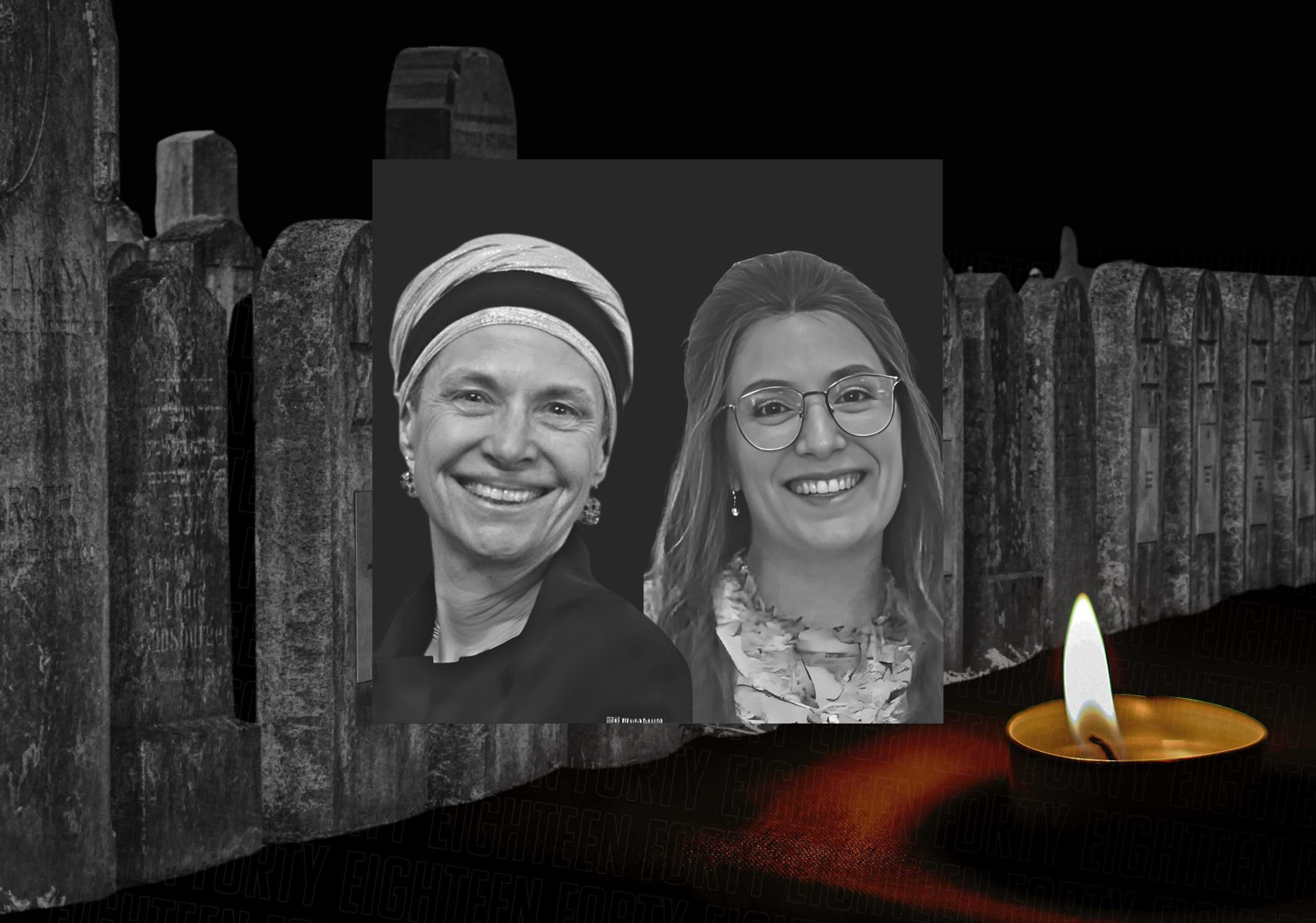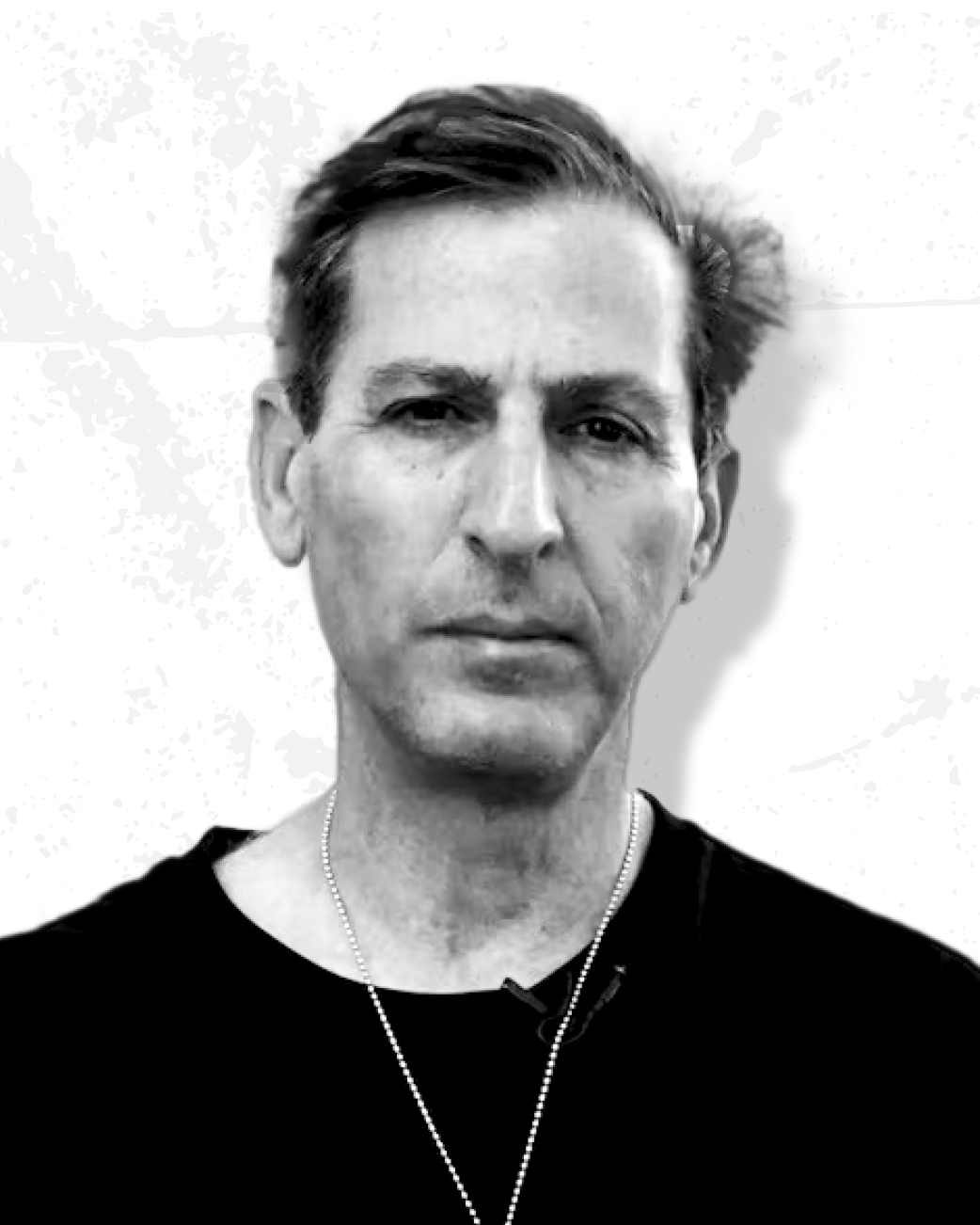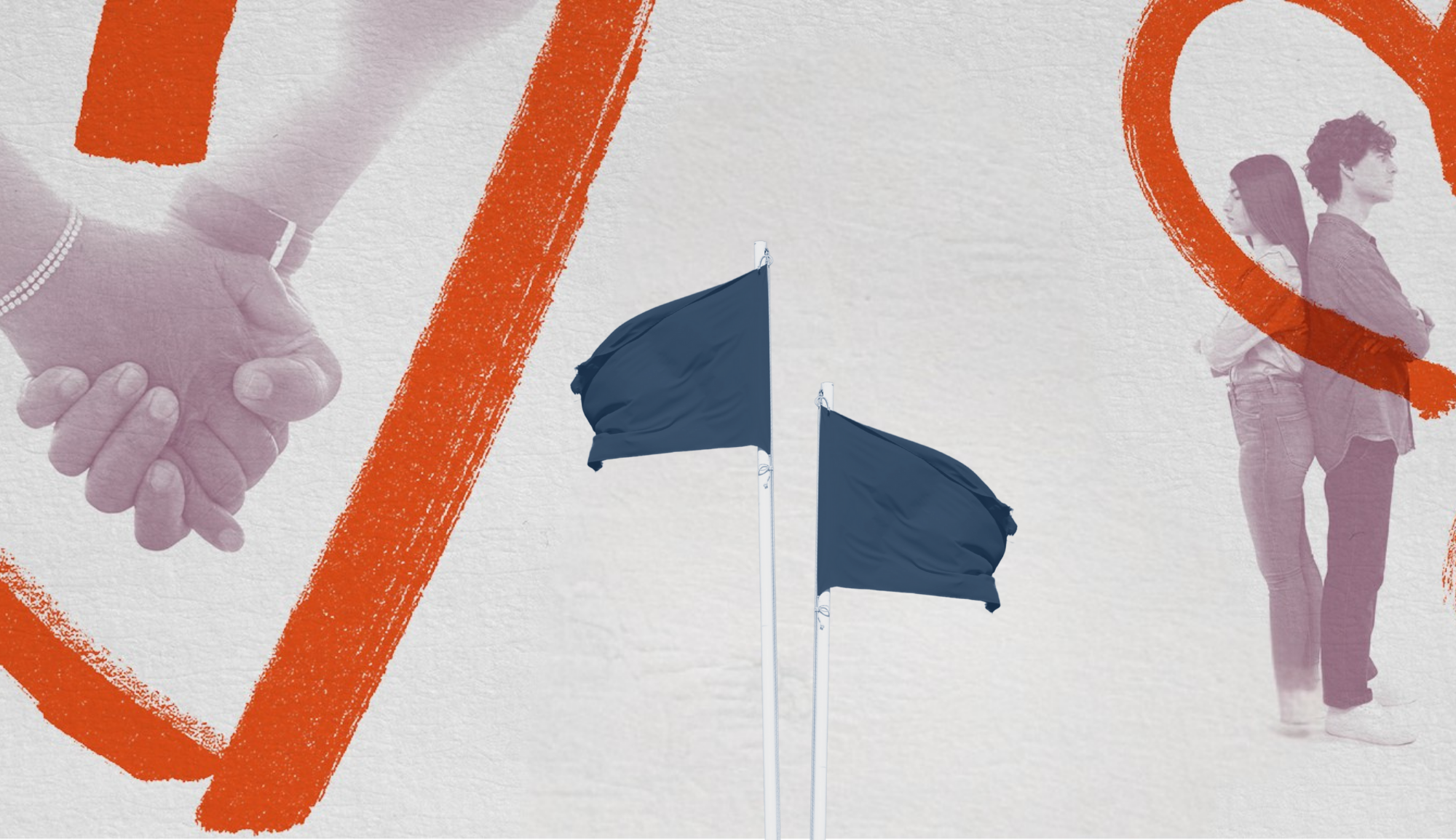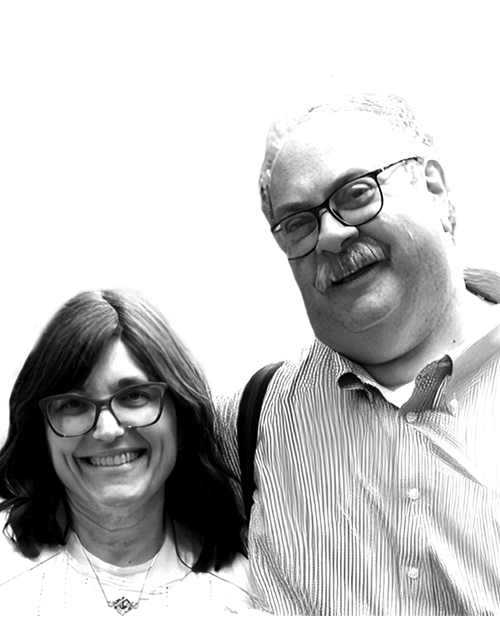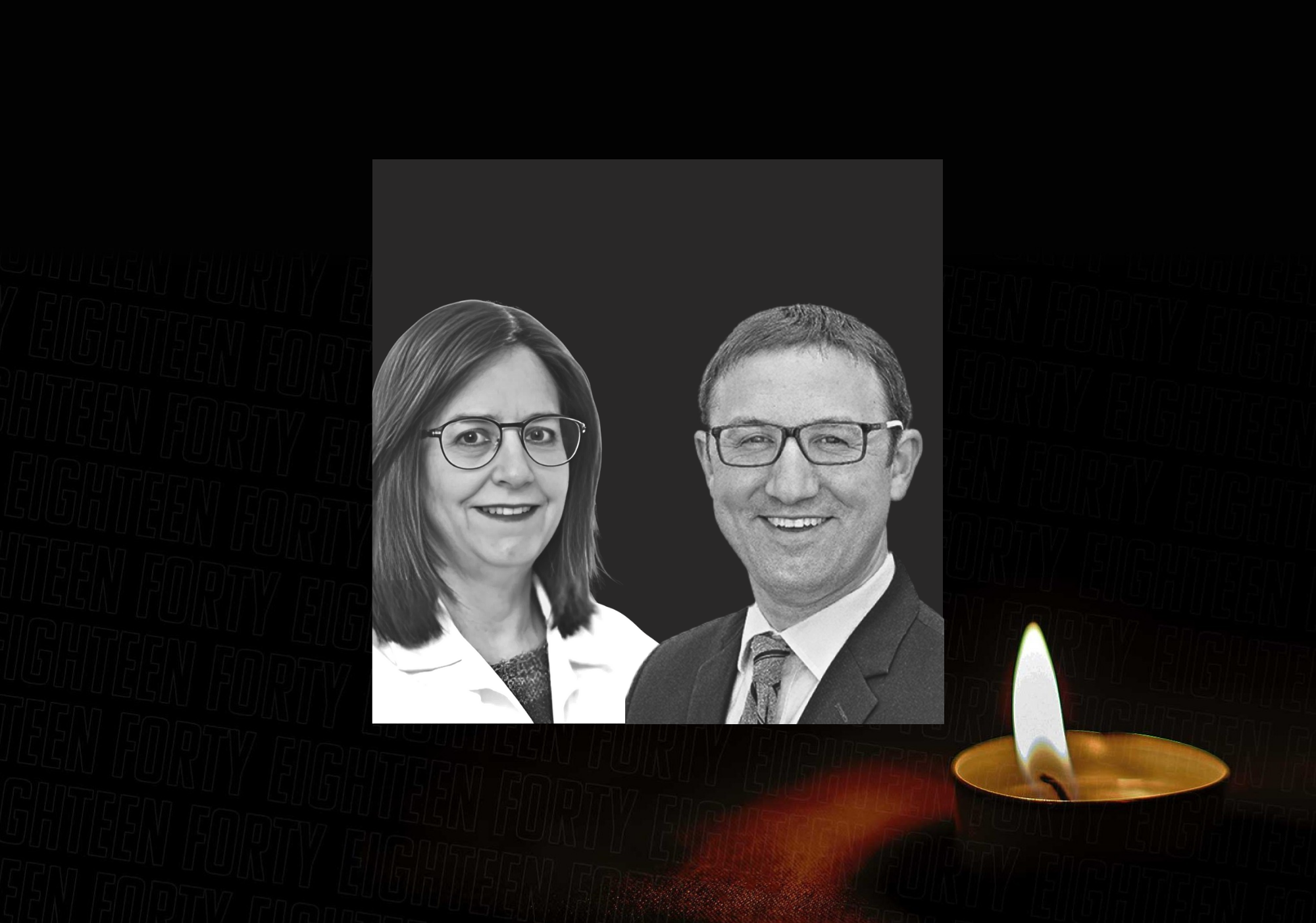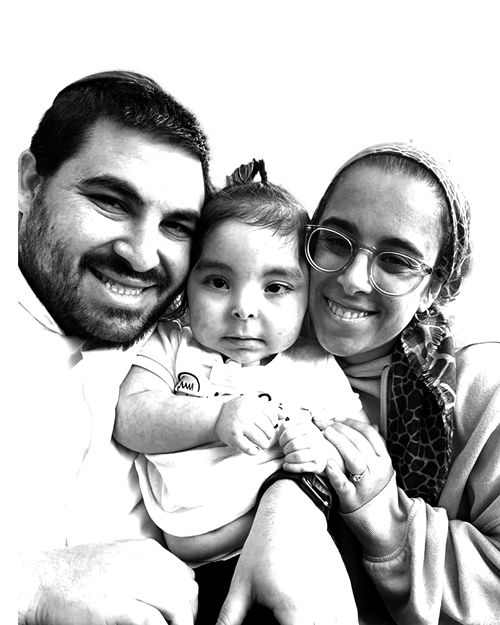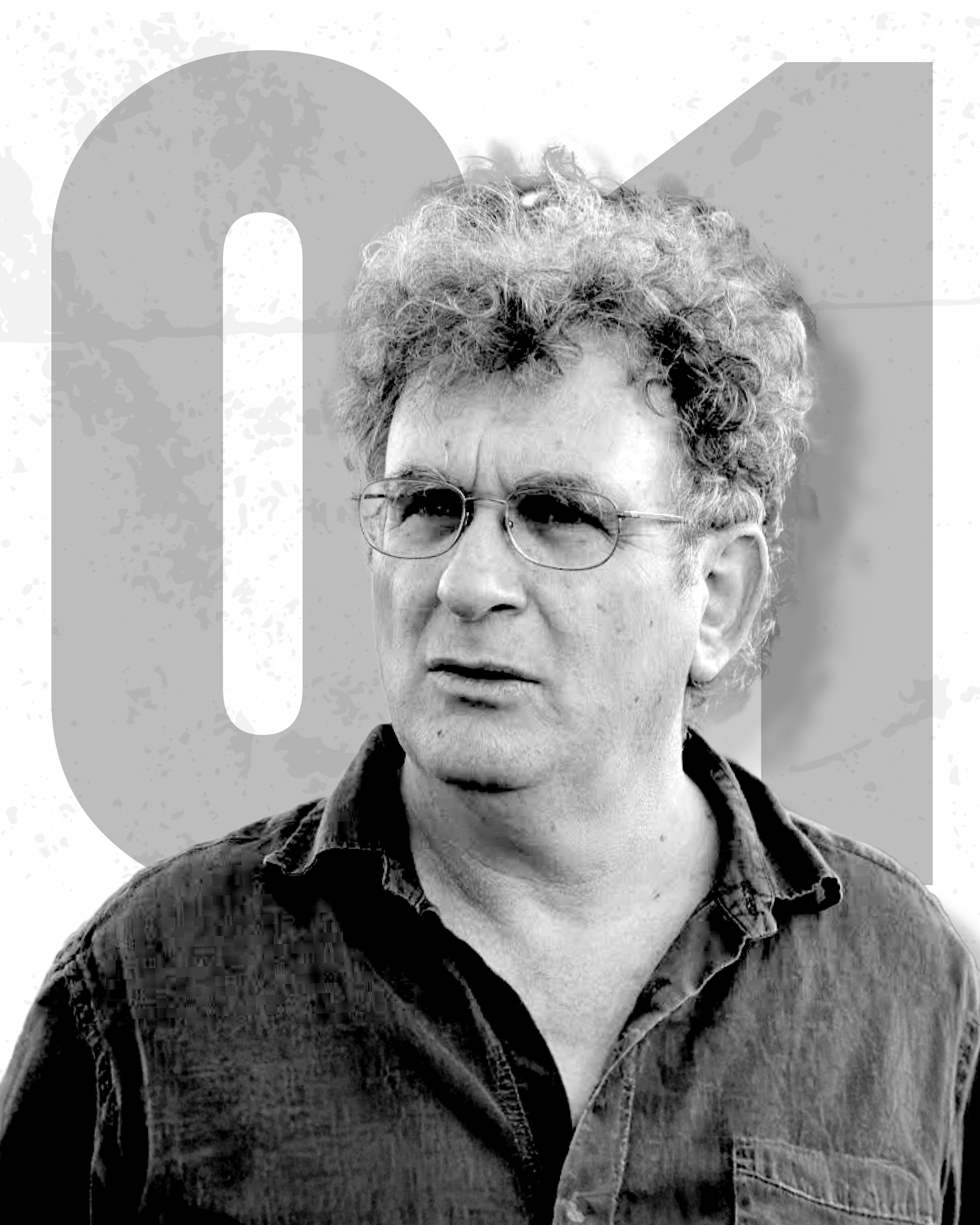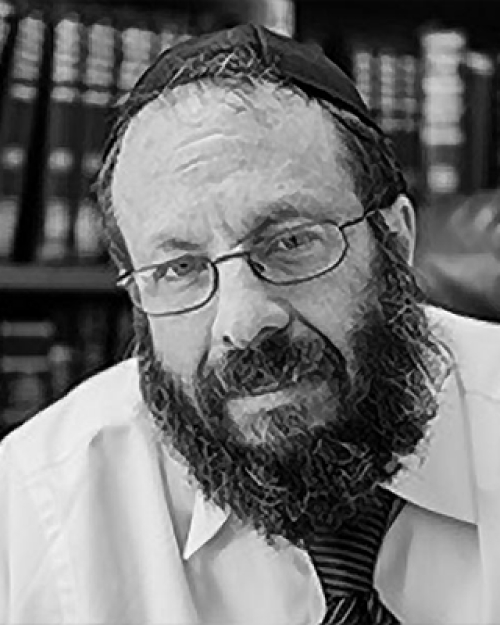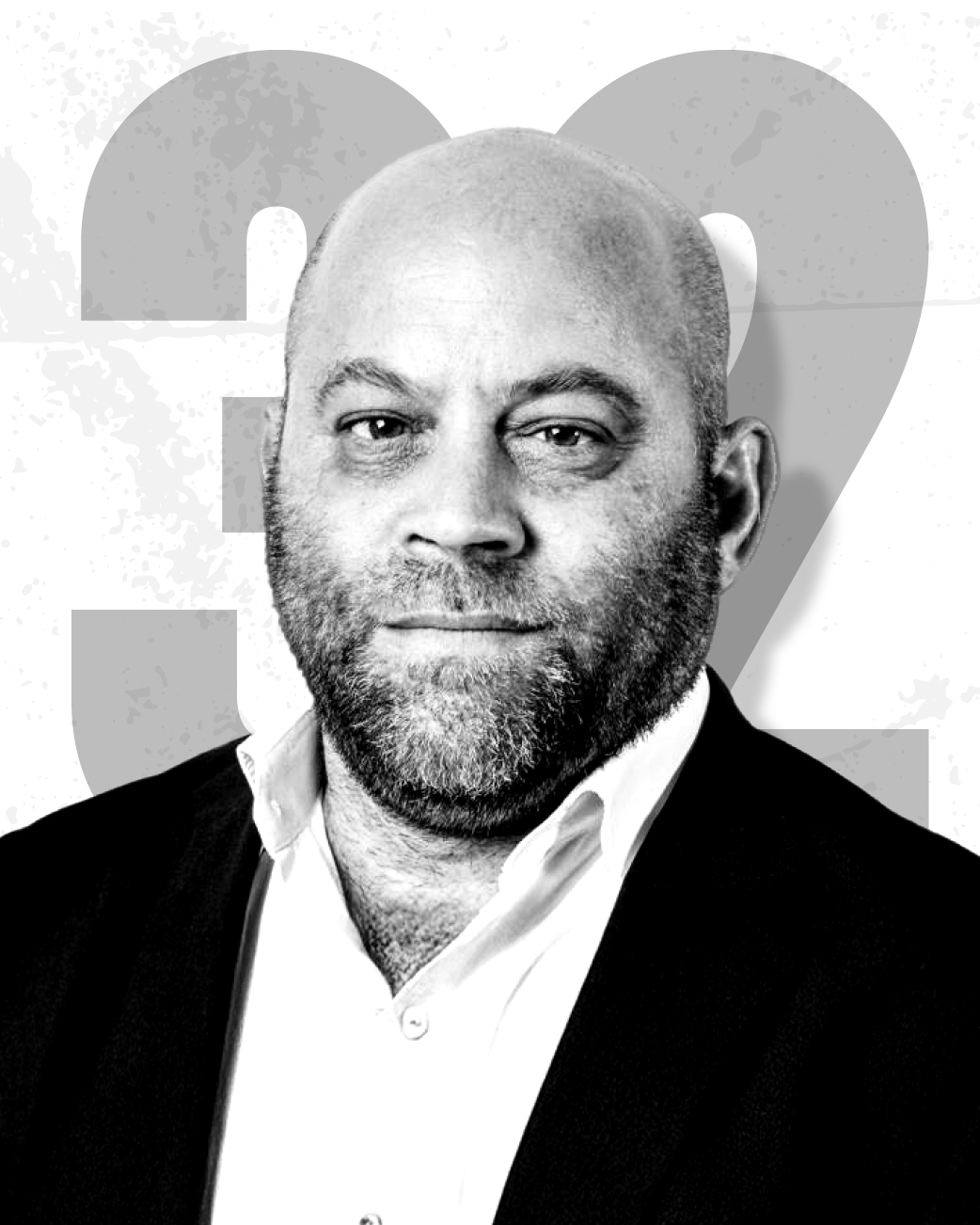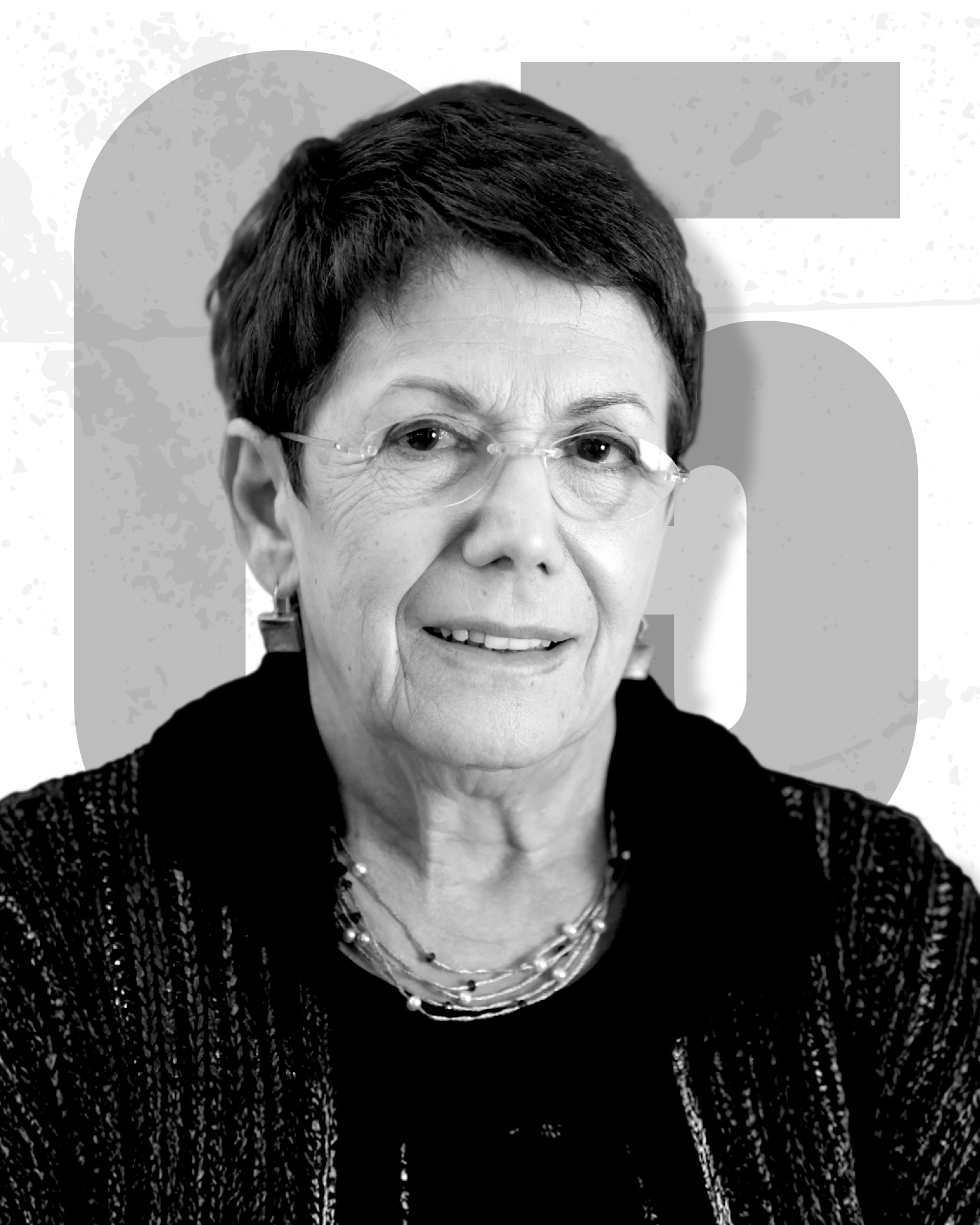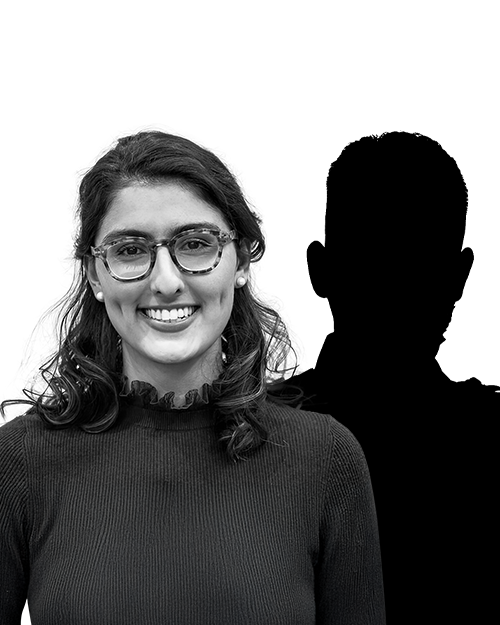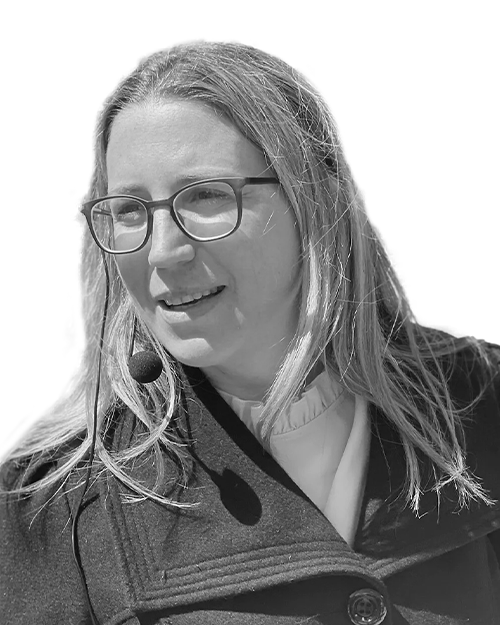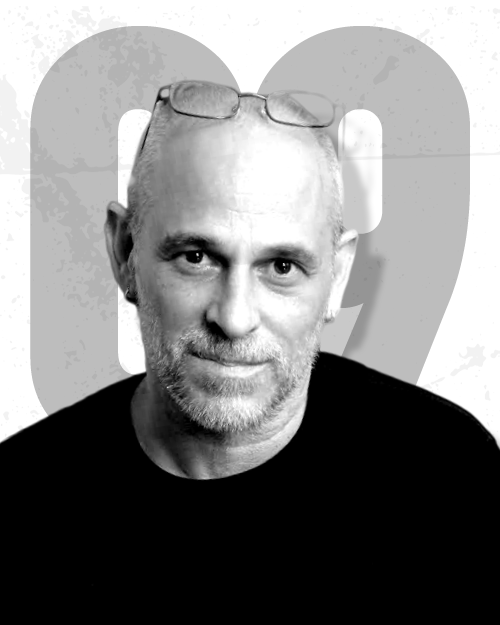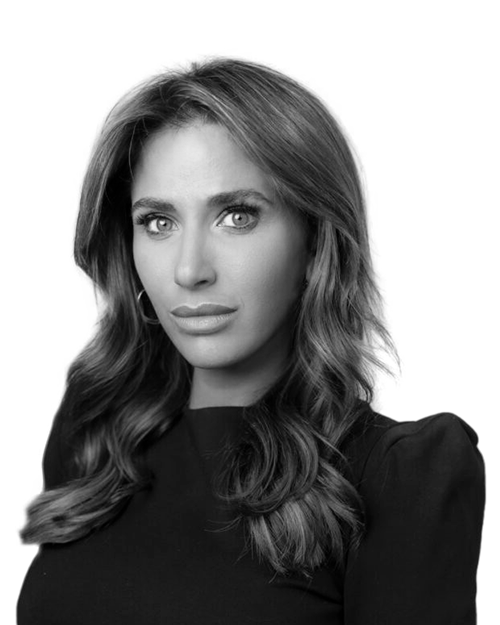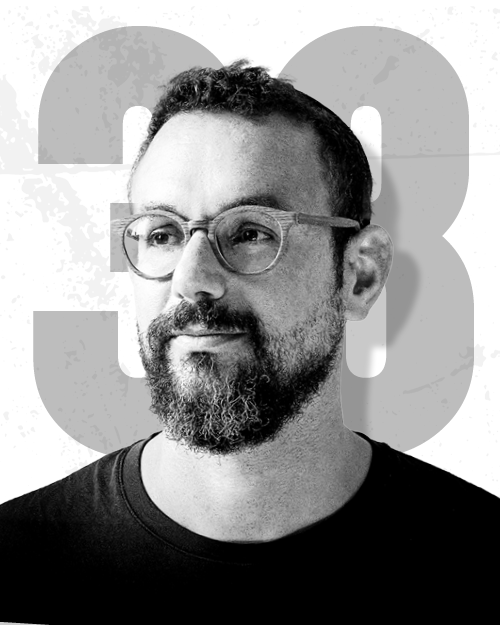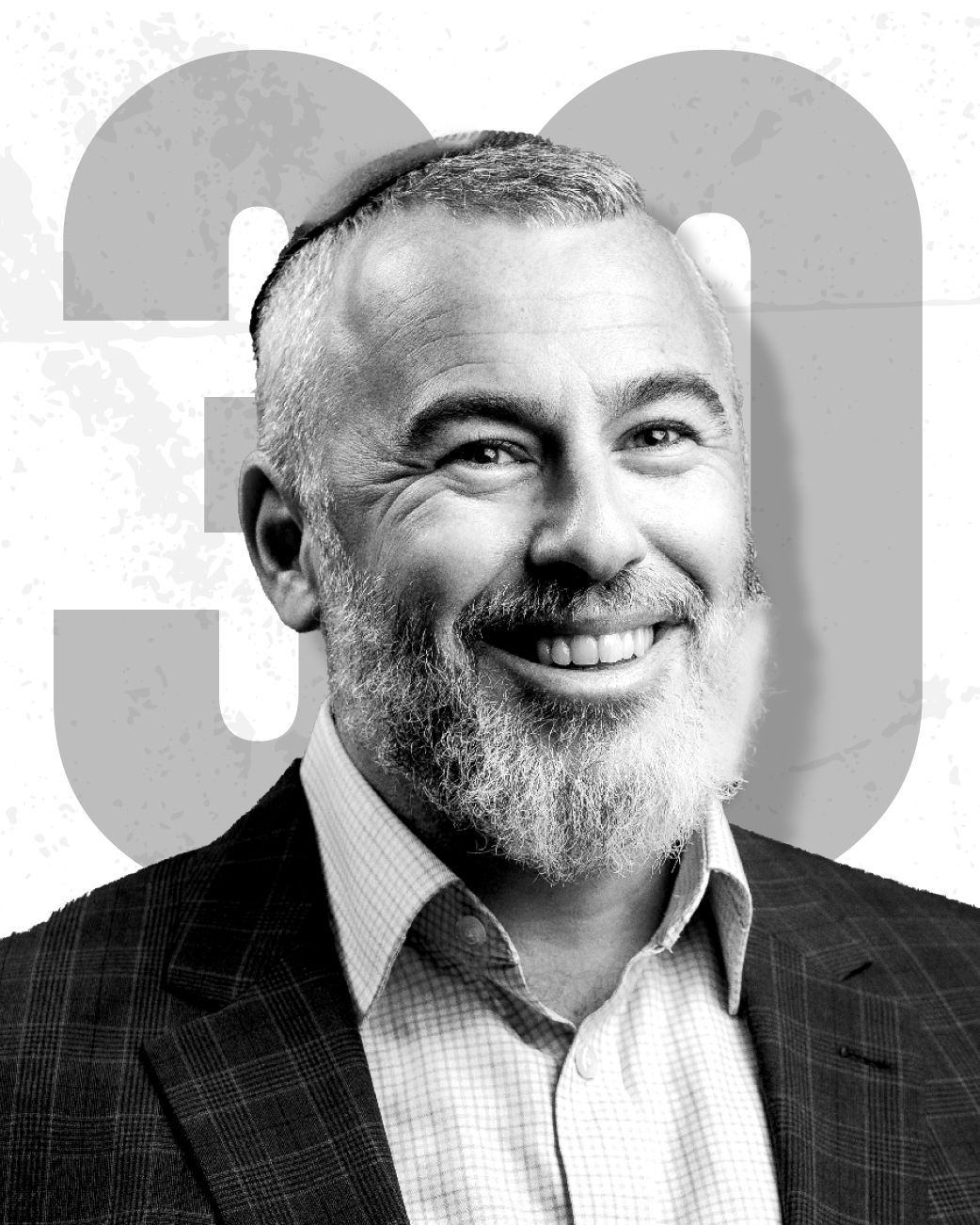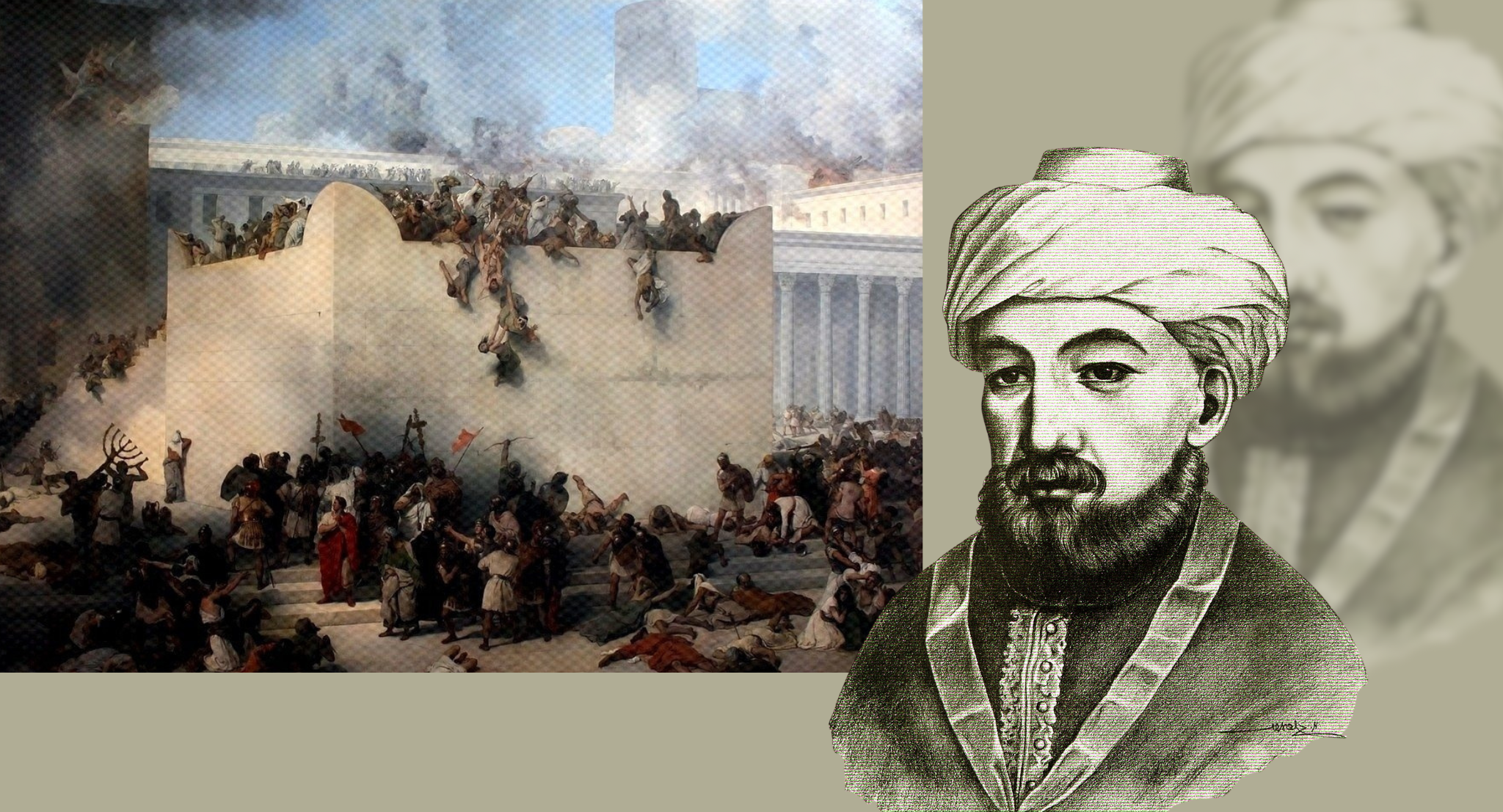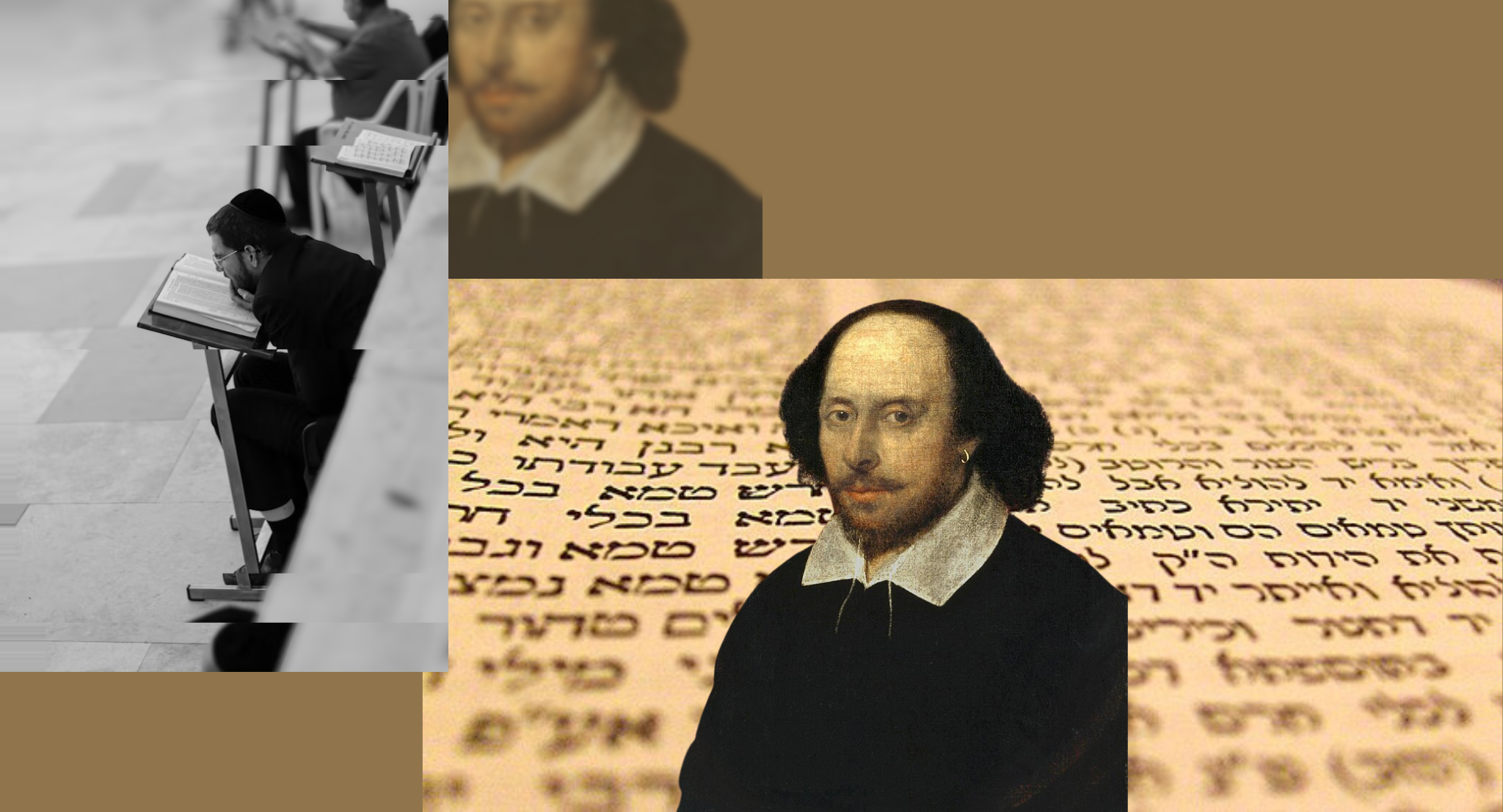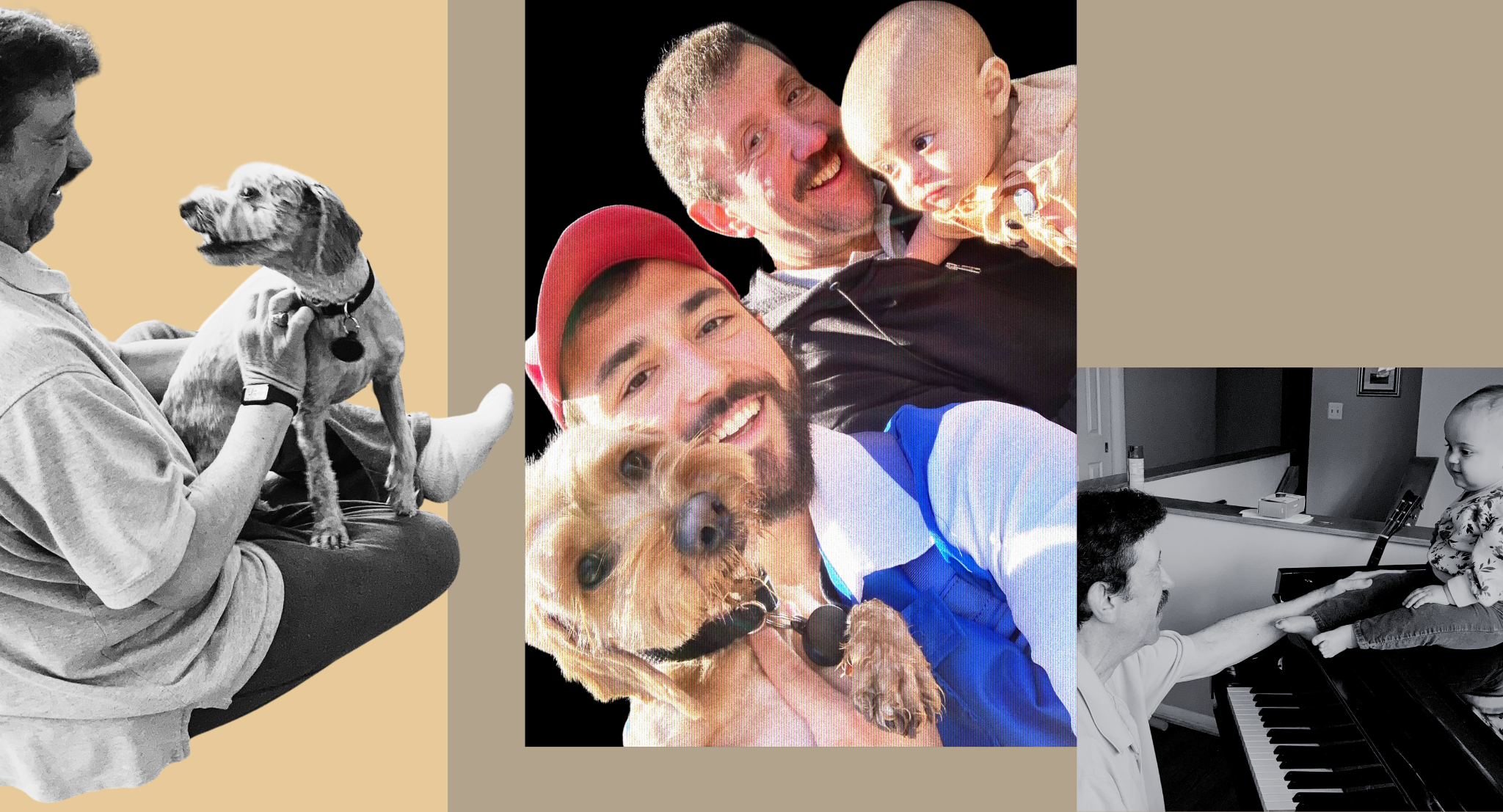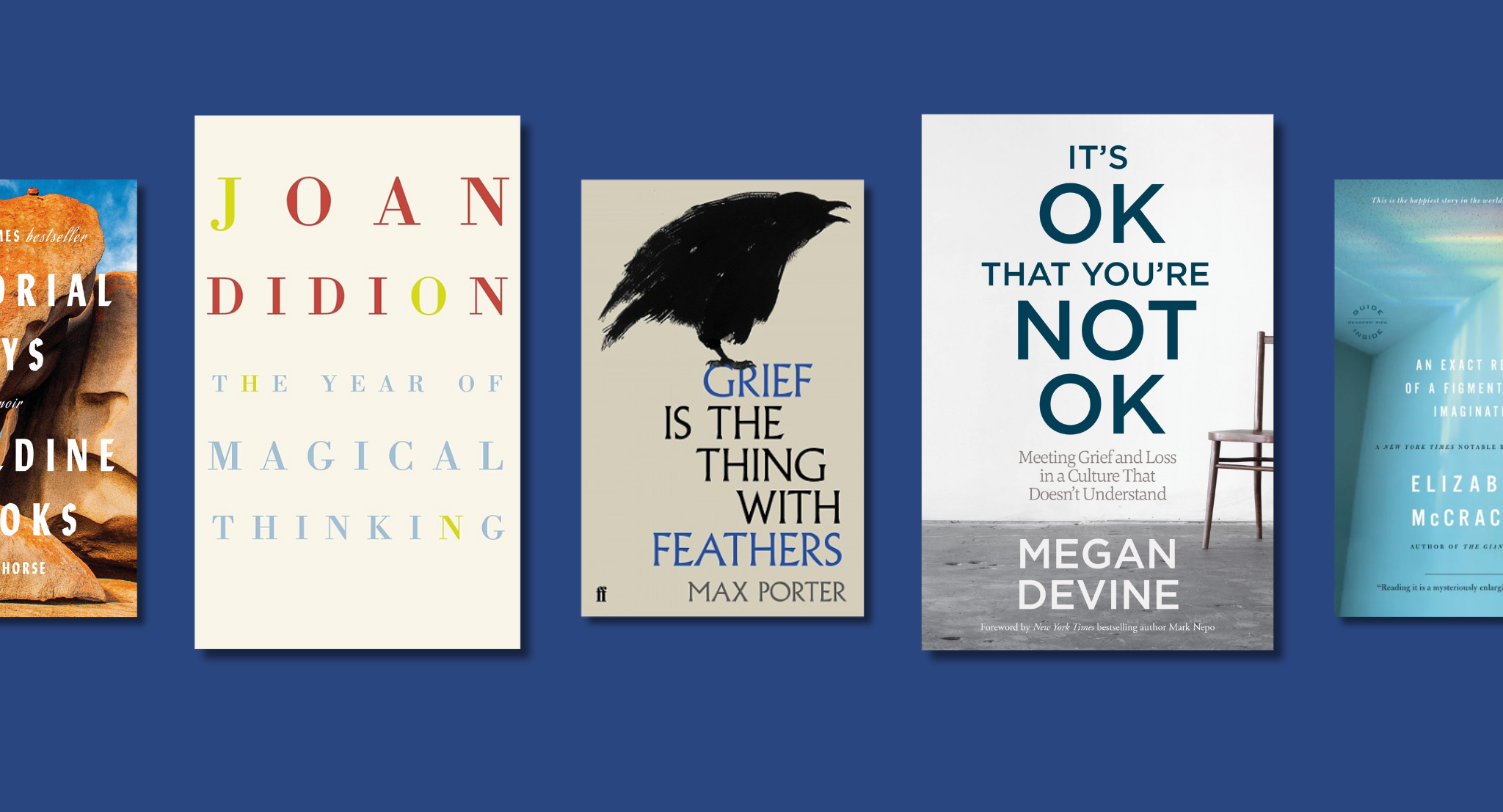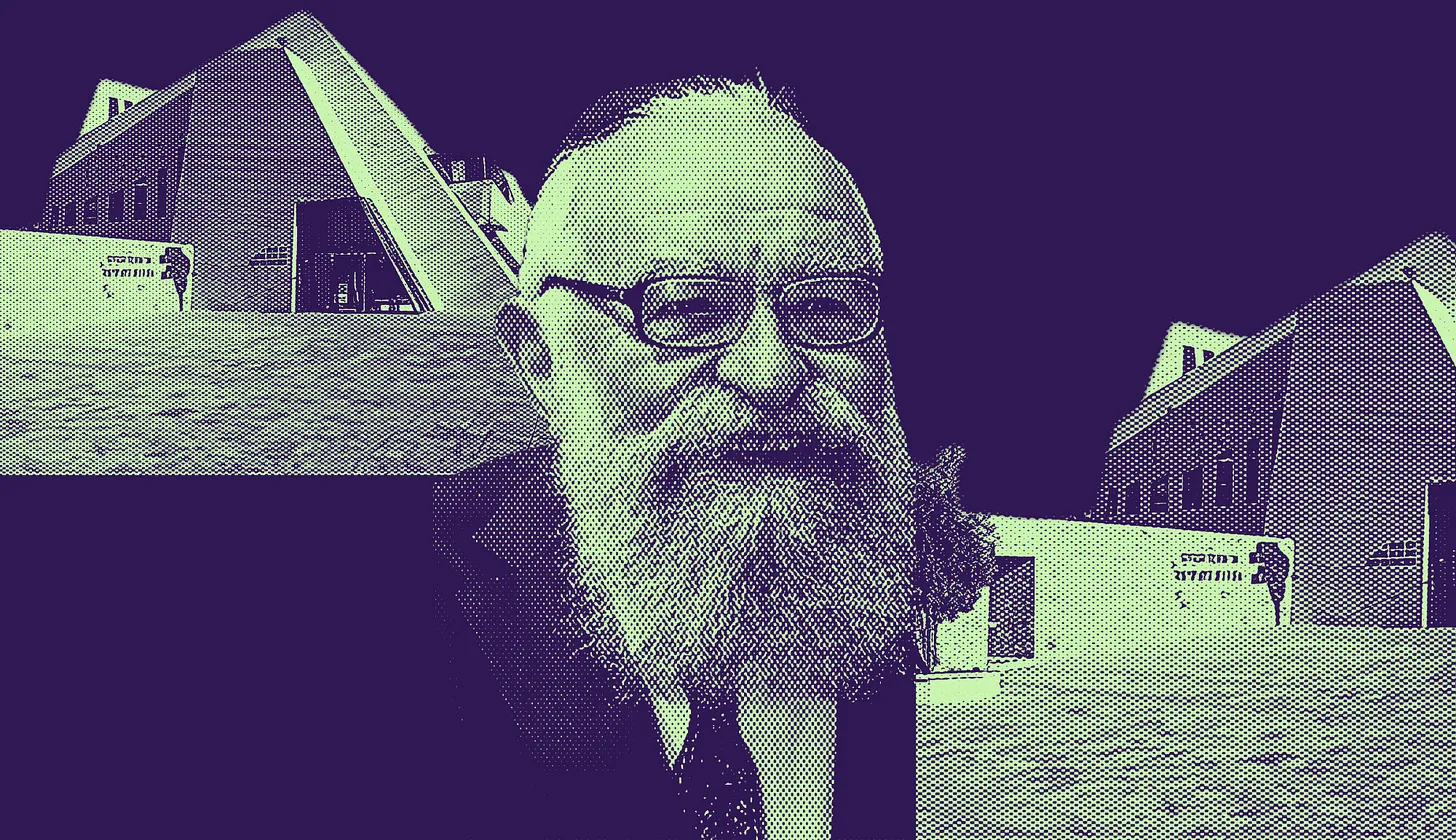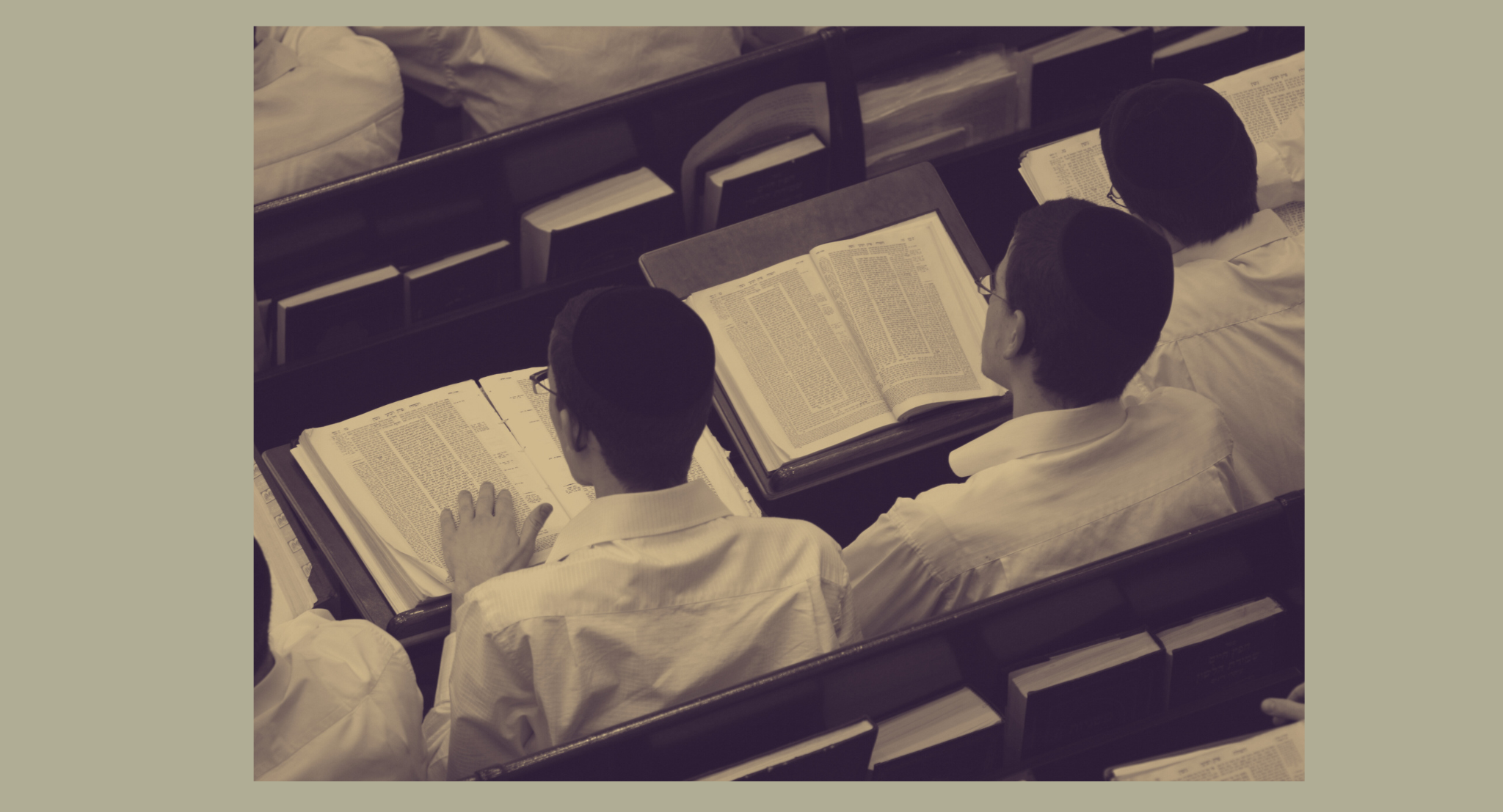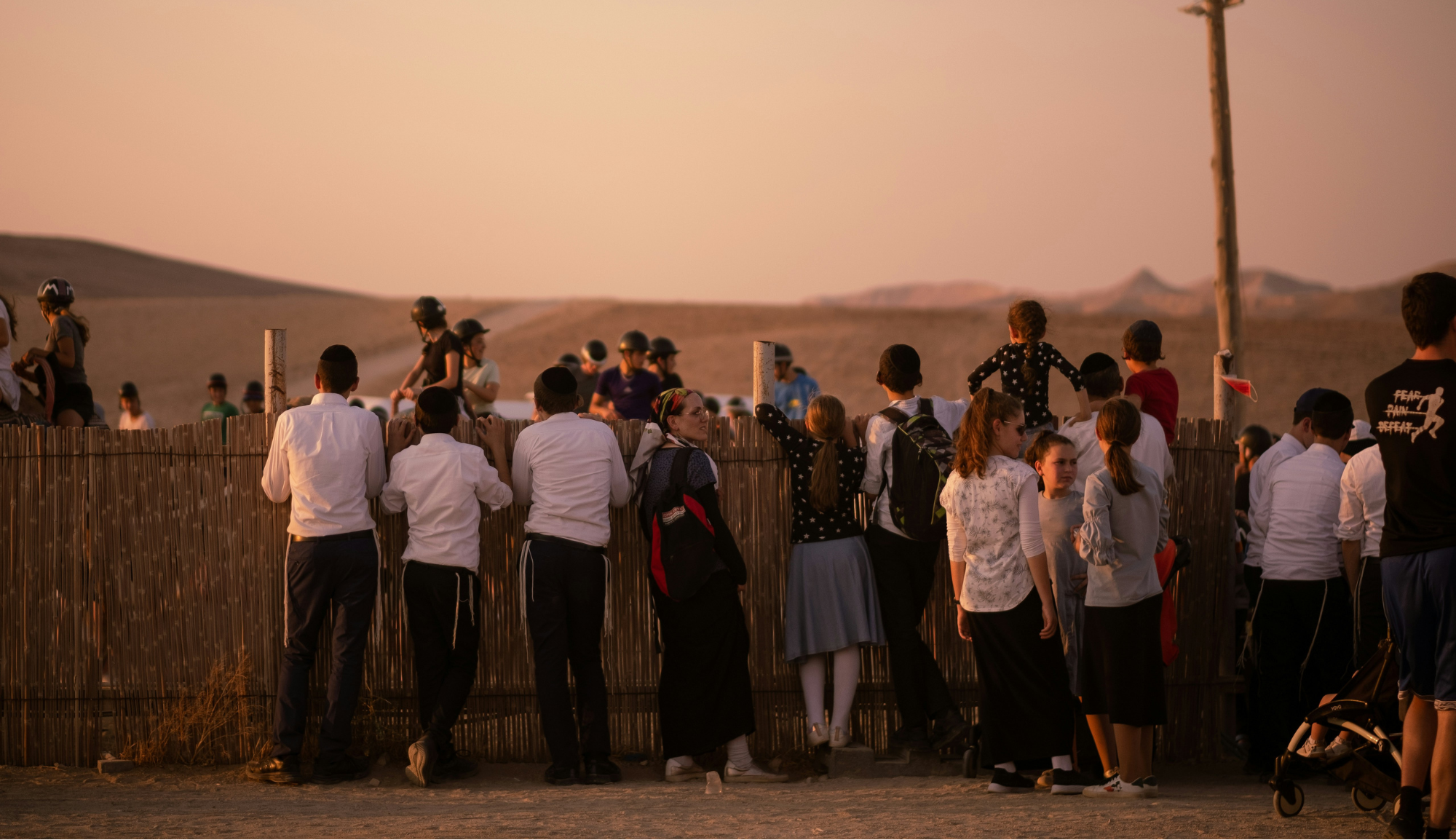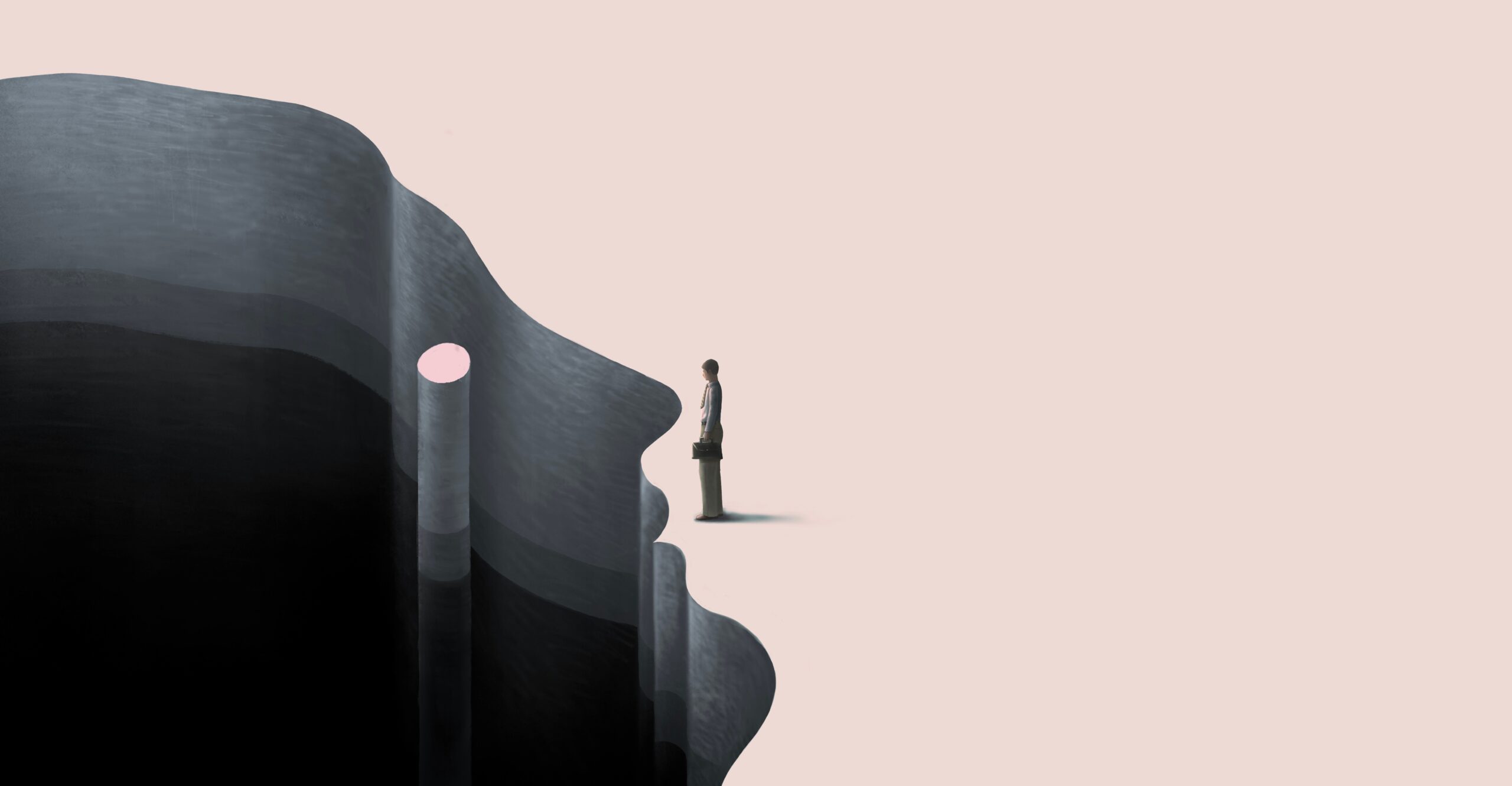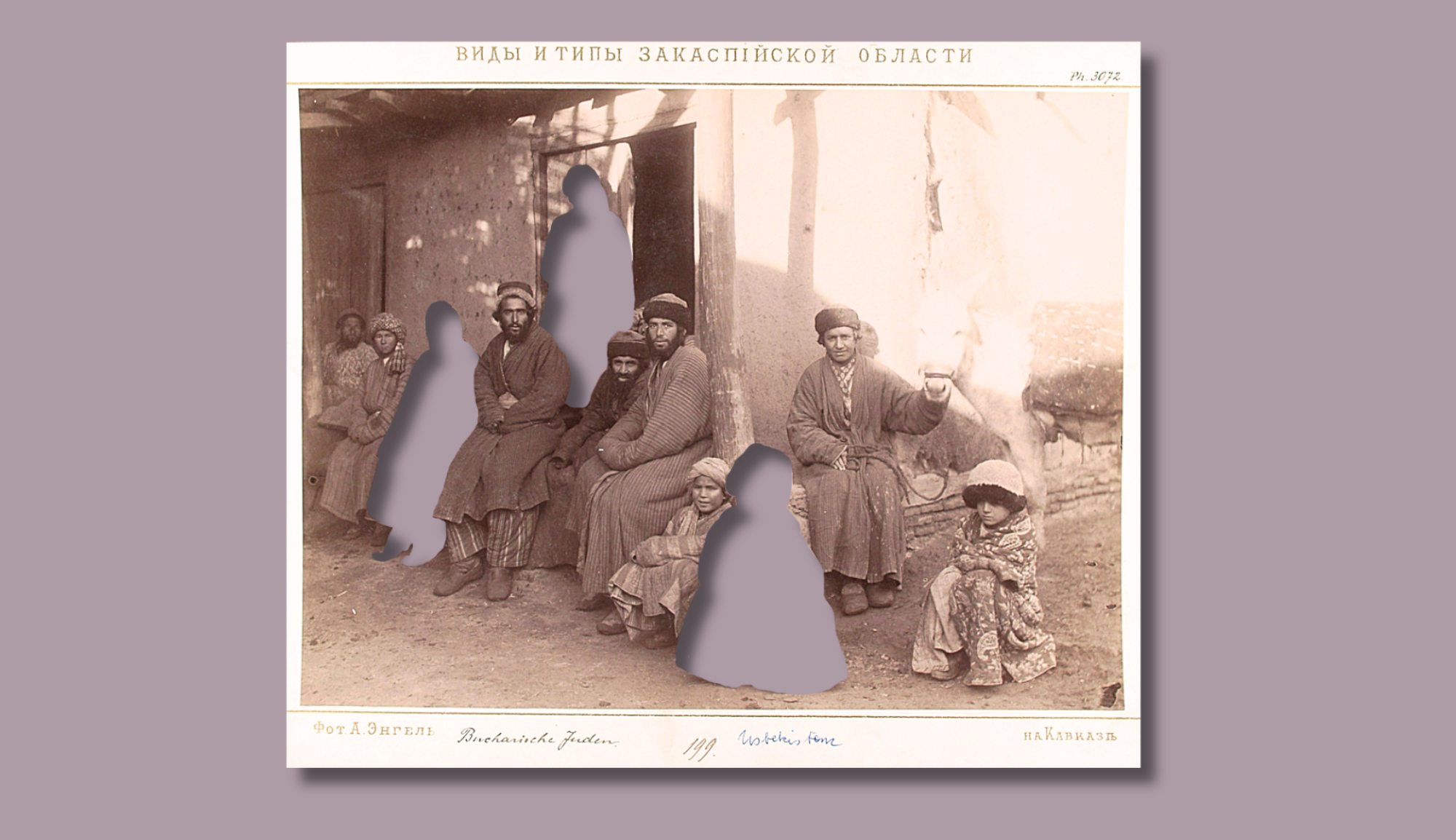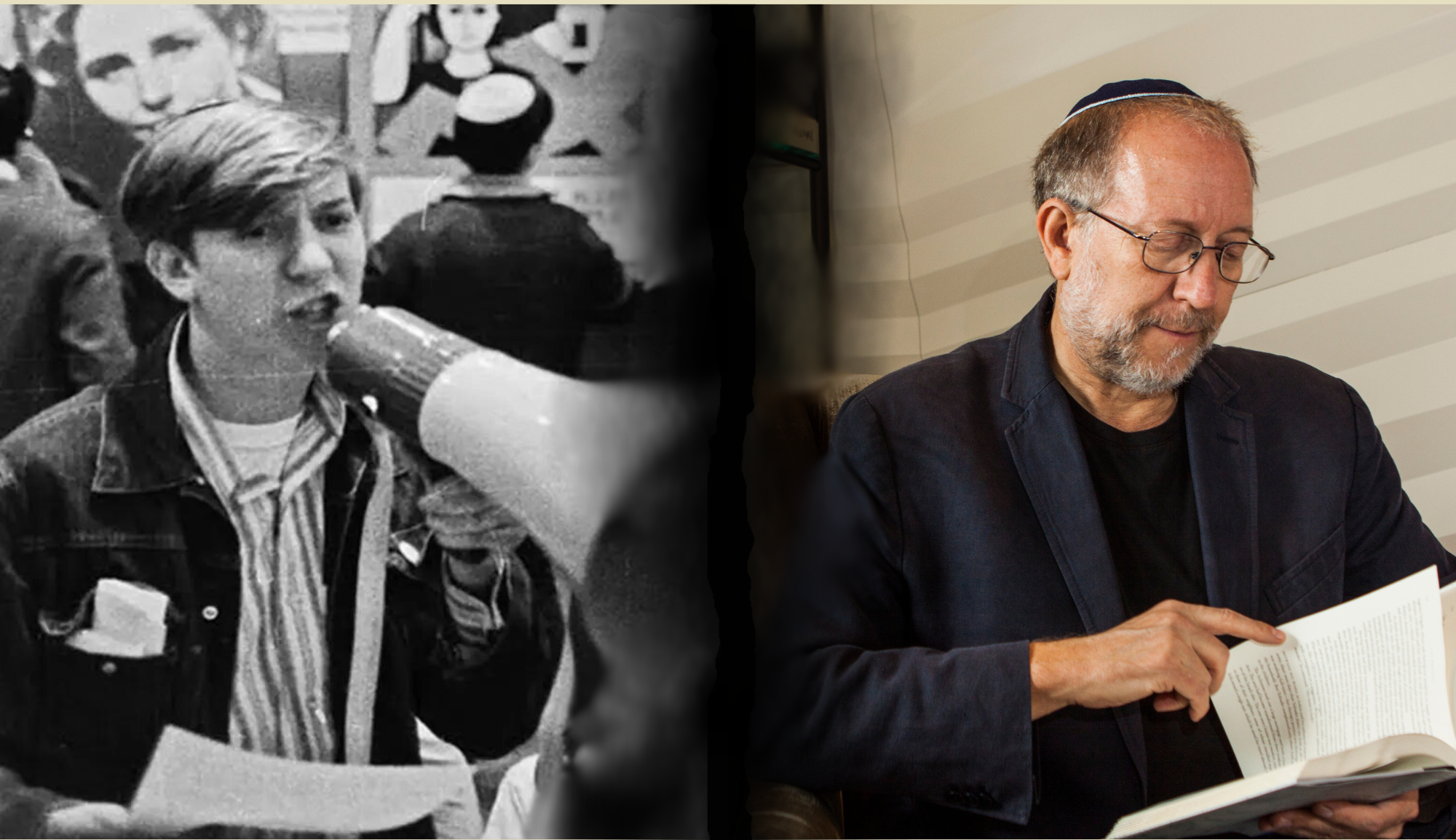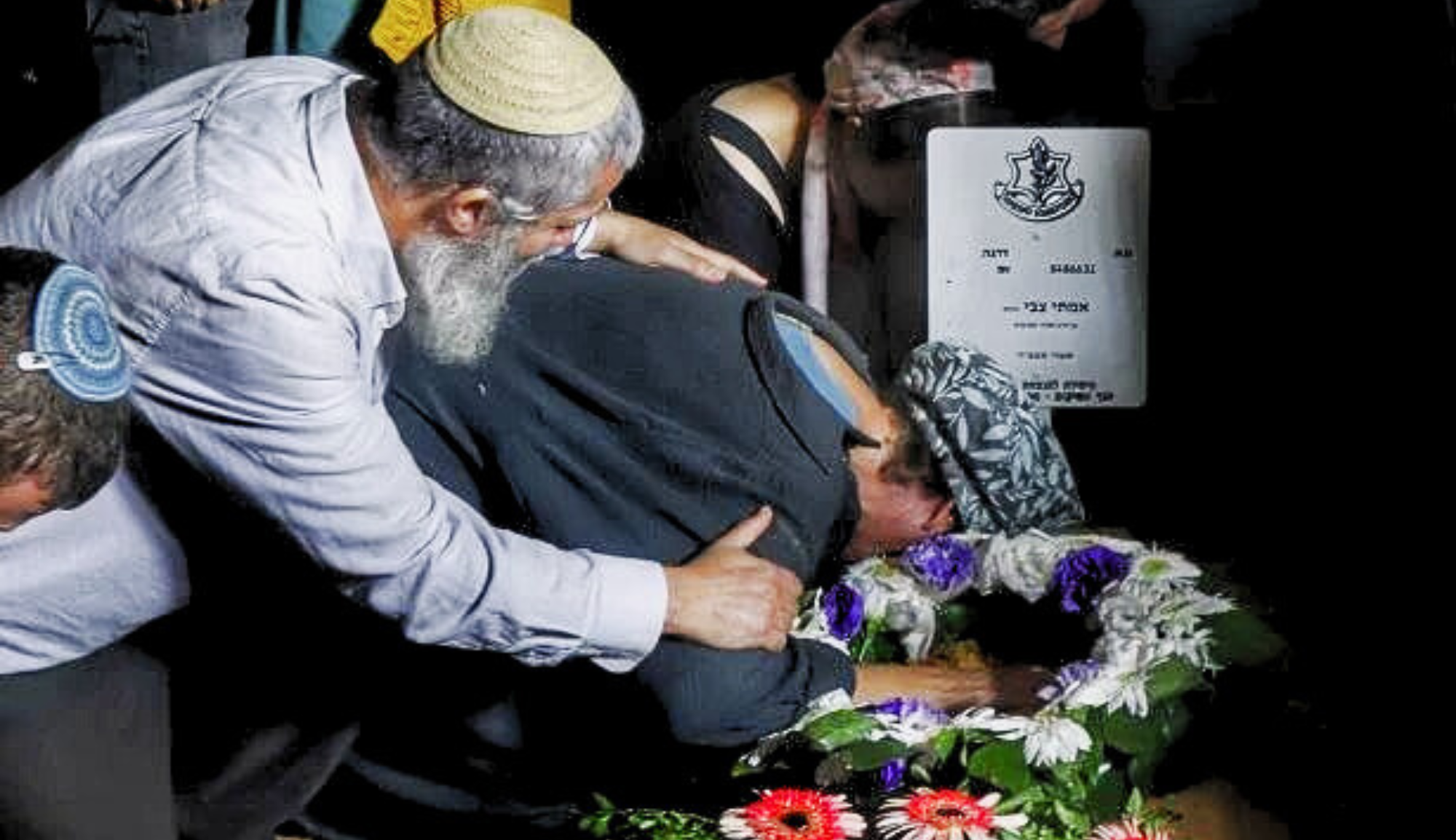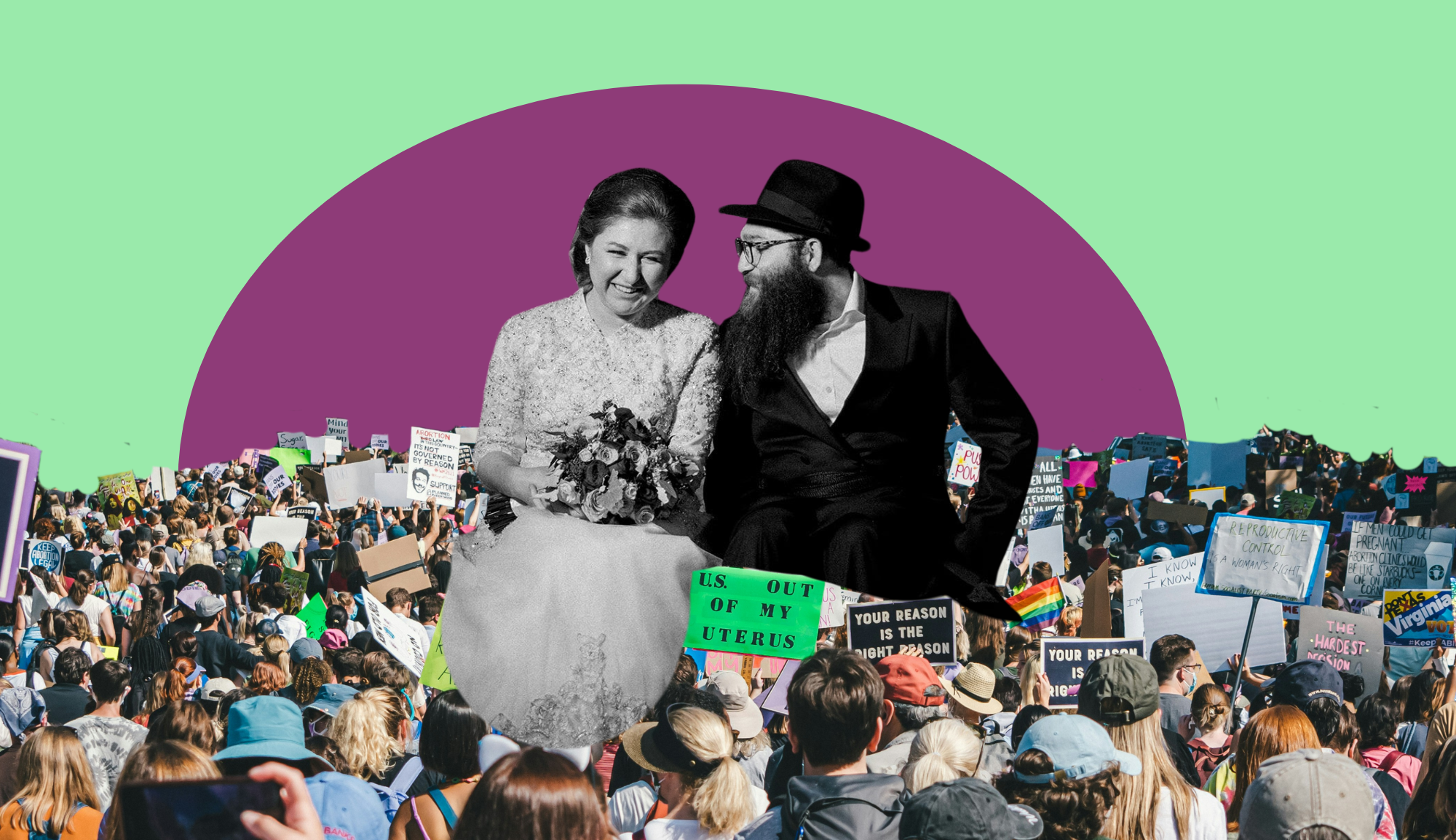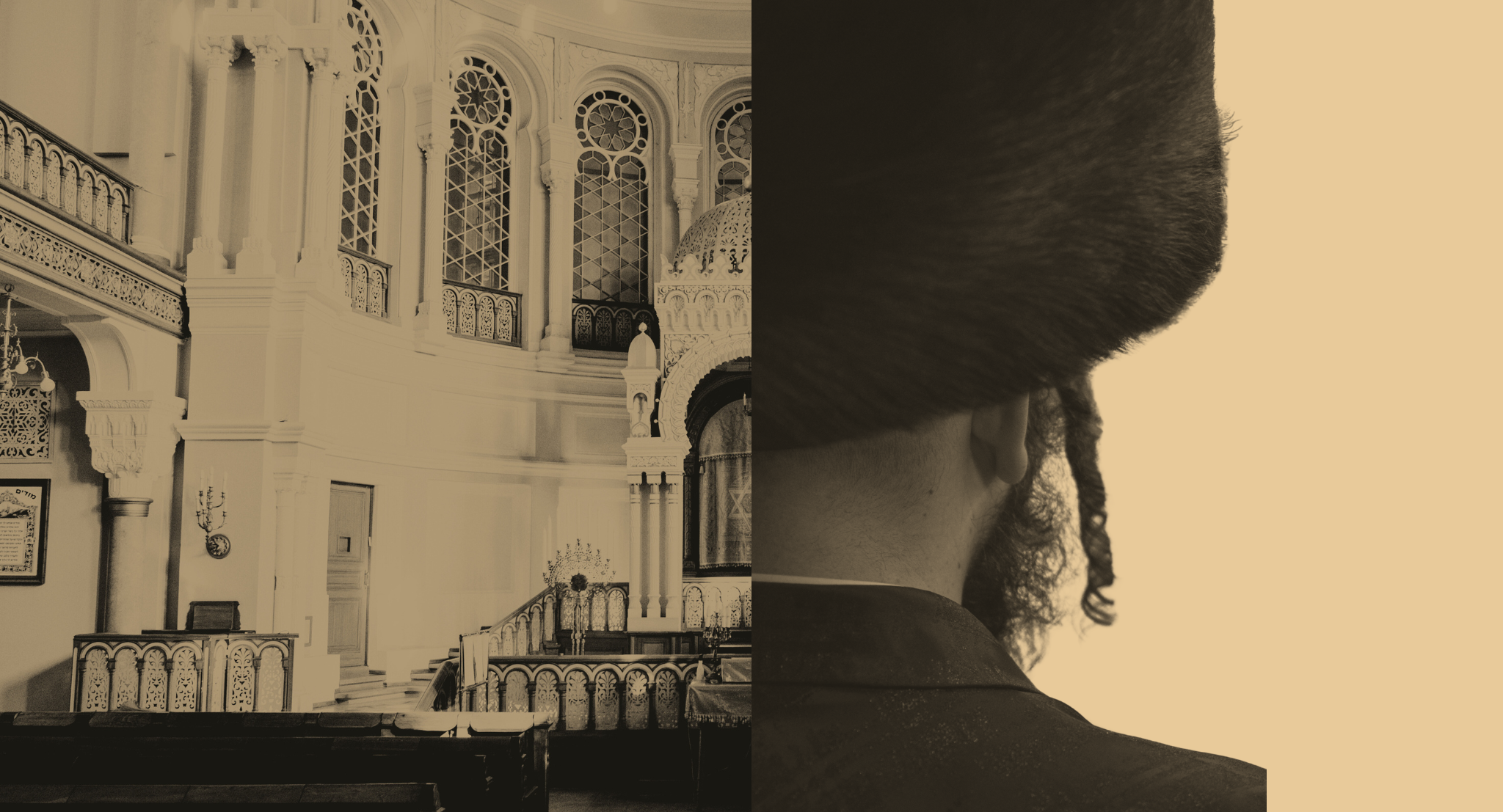Ari Koretzky: In Conversation with Dovid Bashevkin
Among the many questions we receive at 18Forty, there are some we find recurring: Who does 18Forty serve? What is its purpose? In this episode, 18Forty Founder Rabbi David Bashevkin reflects upon those questions—except he isn’t the one interviewing.
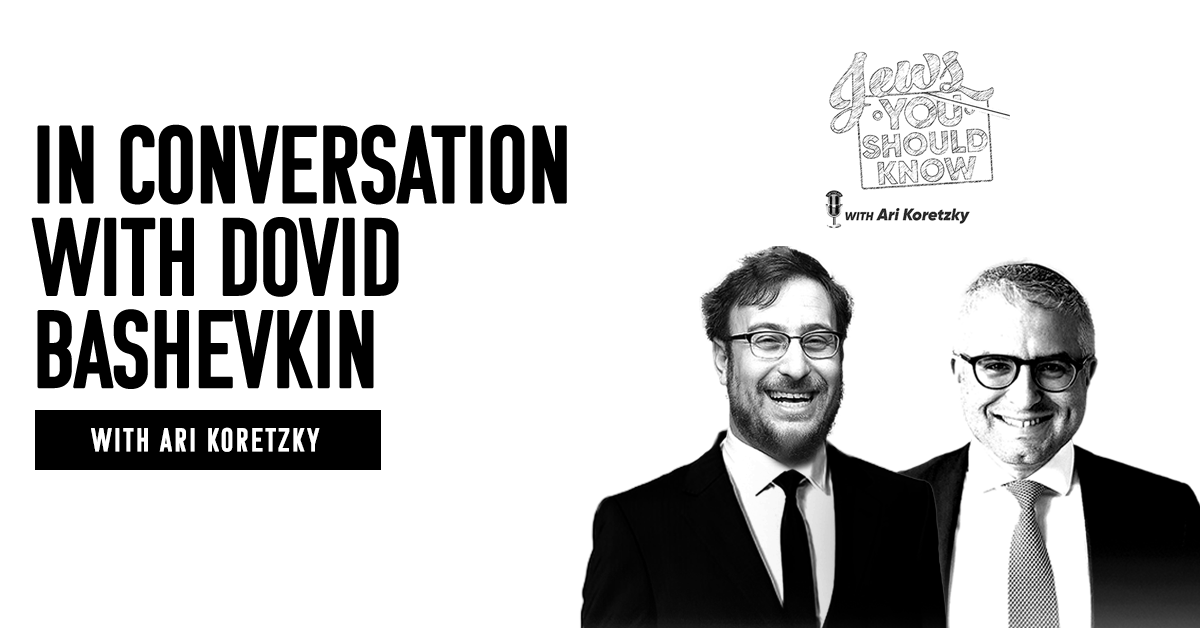
Summary
Among the many questions we receive at 18Forty, there are some we find recurring: Who does 18Forty serve? What is its purpose? In this episode, 18Forty Founder Rabbi David Bashevkin reflects upon those questions—except he isn’t the one interviewing. Instead, Rabbi Ari Koretzky, host of the Jews You Should Know Podcast, interviews him.
- What is the story of David’s personal religious development?
- What were 18Forty’s greatest challenges and successes?
- Where is it heading?
Interview begins at 5:44.
References:
Saturday Night Live – “Father-Son Podcasting Microphone”
“Rav Moshe Weinberger: Can Mysticism Become a Community?”
The Bedwetter by Sarah Silverman
“Journey to 18Forty: A Conversation with Mitchell D. Eichen”
“Malka Simkovich: The Mystery of the Jewish People”
“Dr. Ora Wiskind: How do you Read a Mystical Text?”
Introduction to Love’s Executioner by Irvin D. Yalom
Transcript
Dovid Bashevkin:
Hello, and welcome to the 18Forty podcast where each month we explore a different topic, balancing modern sensibilities with traditional sensitivities to give you new approaches to timeless Jewish ideas.
I’m your host, Dovid Bashevkin, and this month we’re actually reflecting on 18Forty itself. This podcast is part of a larger exploration of those big juicy Jewish ideas, so be sure to check out 18forty.org, where you could also find videos, articles and recommended readings.
I remember when we first began 18Forty before any podcast were recorded, but Mitch and I were talking about this idea, and I had mentioned it to a close friend of mine who I affectionately call The Benj. His name is Benji Samuels. We were at a party of a dear friend who’s a big part of 18Forty, and that is my dearest, one of my oldest friends, Duvi Stahler. I think we were at his 34th birthday party and I was sitting next to Benji, and Benji is a very close friend of mine. One of my really extraordinarily bright, gifted… He’s in a group, a very exclusive group, he’s the one person who I share my Wordle and Quordle score with every single day. Thought I stopped playing? Absolutely not. I just didn’t buy into the hype. I didn’t really share much on social media, but every day we share our scores together.
And I remember I was sitting next to The Benj and we were talking about this project and I was telling him about 18Forty. And I remember he looked at me and he said, “I don’t think you’re like host material. You’re more of the guest on a podcast. You’re more of the person who’s like reacting and responding. You’re not really the host.” And aside from being absolutely crushed and already dealing with anxiety about this project and saying, “Oh, now we’re for sure going to fail,” it always stuck with me. And you know, there are different aspects of yourself, some that come out when you are the host and guiding conversations and discussions, and there’s some that come out only when you are a guest and responding to other people’s questions.
And for me, 18Forty is more than a weekly podcast with somebody interesting. We’re really trying to accomplish something. And every few months, we try to take a moment and reflect what is it that we are doing? What is it that we are trying to accomplish?
And I have a friend who you may know of. He has a podcast of his own, his name is Ari Koretzky, who runs the podcast Jews You Should Know, which was one of the earliest podcasts in the Jewish space, and interviews all sorts of interesting people. And I was a guest on his show a while back. Ari works in Jewish outreach.
And I remember being a guest, he reached out to me. I don’t remember when it was, it was pretty early in the podcasting world. He said, “Do you want to be a guest on my show?” And honestly, my answer was, “Not really. Like, I don’t like these shows.” I don’t like being on the celebrity personality driven podcast, but I remember I was a guest on his show and I found his questions absolutely fascinating. He really pushed me to think about things that I wasn’t thinking about otherwise. And we’ve been in touch ever since.
He is a voracious consumer of Jewish media. He listens to everything. He certainly is a listener to 18Forty. And he reached out to me really before the summer and said, “Do you want to record a podcast together that you could put out on the 18Forty stream? It’s not for me, it’s for you.” And my initial response was, again, “Not really.” I didn’t understand the point. I didn’t know what exactly he wanted to get at. And I was nervous that he was just trying to like… I don’t know, as a Jewish outreach professional, there’s a different perspective that you have on what we’re doing because we’re not really easily classified as, certainly not a Jewish outreach podcast in its most classical definition, we’re not trying to prove the existence of God or get you to join any particular Jewish community. We’re trying to discuss larger issues that people who already were introduced to these concepts and ideas within the institutions that they are a part of and help them contend with them and navigate them. So again, I was concerned.
And he’s a persistent guy and he reached out a second time, a third time. And I looked at our calendar and I saw that we have this gap. We just did, over the summer, a series on books. We just did our series on loss that we really try to come back to both of those subjects every summer. We love book culture, and it’s also a privilege to talk about loss every summer. And one thing that I saw that we were missing was a conversation about 18Forty itself. We hadn’t done a listener conversation in a few months, and I certainly haven’t spoken and taken our own pulse in quite some time. I said, “You know what? We have two weeks before we drop our next series leading up to the High Holidays, Yamim Noraim. Why don’t we record something and see what happens?”
And as always Ari’s questions are absolutely illuminating. And Ari Koretzky is definitely a Jew You Should Know, maybe one day we’ll return the favor and interview him, but I’m always really fascinated by kind of his conversations and his line of questioning and where he asked me to join him within the conversation. So it’s really a privilege. And I’m so happy that we were able to do this. A little bit lighter, I guess, over the summer, in some ways even heavier because he’s asking you to reflect on a project that you’re already involved in, but it is my pleasure to introduce Ari Koretzky’s conversation with me.
Ari Koretzky:
It is my absolute pleasure to interview a dear friend… Can I call you with dear friend? Rabbi Doctor Dovid Bashevkin. How are you?
Dovid Bashevkin:
I am great. The reason why I wanted to do this is because I’ve been interviewed a bunch of times and I really feel like the last time we spoke, which I also ducked away from, there’s so many podcasts and so much content coming out, but I thought that your questions and the way you approach it were so incisive that I thought this was a cool opportunity. We get a lot of feedback, you have this particular lens. You’ve been listening, I assume?
Ari Koretzky:
Avidly, Dovid.
Dovid Bashevkin:
Really? That means a great deal to me. And yeah, I figured we had downtime anyways in August, so why not open it up to a time where we can just explore and reflect on what we’re doing. And I thought this was a really cool way and a model to do it.
Ari Koretzky:
Absolutely. And I appreciate that you’re open and flexible to do it. You’re very intentional about everything that you do and particular about the podcast and the media company, if you will. And so it means a great deal, as you might say.
Dovid Bashevkin:
You’re using all my lines. You’re stealing all my lines. I love it. Dear friend, absolute pleasure.
Ari Koretzky:
Can I call you Dovid?
Dovid Bashevkin:
Can I call? Yes. You could call me Dovid. Please call Dovid, yes.
Ari Koretzky:
By the way, one of these times, I want you to just ask one of your guests, “Can I call you Fred?” Make him a random name.
Dovid Bashevkin:
A random name?
Ari Koretzky:
Be like, see what they would do.
Dovid Bashevkin:
Exactly.
Ari Koretzky:
“I guess.” But funny that you mention the last time we spoke because I love the Saturday Night Live skit that you played, the excerpt that you played on one of, again, the inside baseball kind of episodes of which you’ve done a few. And we are hopefully going to try to make this one a little bit different, but the skit that you played about how…
Dovid Bashevkin:
The skit with the father and son podcasting together?
Ari Koretzky:
And they’re like, “Dad, how are you?” It’s like they never talk otherwise. And to me, it kind of defines our relationship, Dovid, because I think we’ve been in a room physically together, maybe twice in our lives.
Dovid Bashevkin:
Once or twice, yeah.
Ari Koretzky:
We had breakfast in Teaneck once.
Dovid Bashevkin:
Sure did.
Ari Koretzky:
And we met very briefly when you were running a program at NCSY that I crashed for a couple minutes. So we’ve barely actually been together, and yet we have this wonderful relationship that we’ve got to do interview and had great conversations between and throughout. It’s really a 2022, I guess, kind of conversation and kind of ongoing dialogue.
But I, myself, a big meta person. Not Zuckerberg, but the concept, right? Because I think so often the context illuminates the content. And in that regard, I love to understand, not just, of course I listen to the podcast, as I said, avidly, but I like to understand what’s animating it, what’s driving it, the nitty gritty behind it. And not only behind it, but really behind you as an individual and who you are. And maybe just as importantly, who you’re not and how that frames what you’re trying to accomplish with this entire project.
What’s so interesting is we did an interview on Jews You Should Know, my podcast, a couple of years ago.
Dovid Bashevkin:
Sure.
Ari Koretzky:
And I want to say that’s like 1839, right? That’s was pre-18Forty.
Dovid Bashevkin:
Was that pre-18Forty? We didn’t have… Wow.
Ari Koretzky:
Pre-18Forty. Pre-doctorate, I believe. And so you’ve been like reborn, I think, in the last couple of years in a certain way. And there’s so much that’s happened. It’s fascinating. There’s so much that I want to delve into.
And of course, you didn’t emerge out of a vacuum. You created 18Forty together with your partner and your team out of, of course, the context of who you are and who you had been. So all of that is entirely relevant, but it’s been a big shift. It’s been a big evolution, I think, for you.
Dovid Bashevkin:
Yes.
Ari Koretzky:
And you’ll speak to that, hopefully. So what I wanted to do, and you’ll tell me if you’re… We didn’t agree on this beforehand, so listeners-
Dovid Bashevkin:
No, we did not. We agreed on nothing.
Ari Koretzky:
We agreed on nothing. And yet that means to me you agreed on everything. So I’d like to have three focuses. I want to speak about the man, that’s you; the show, 18Forty; and then perhaps the world of Jewish podcasting writ large, if you will.
Dovid Bashevkin:
Yes.
Ari Koretzky:
And if we can get to it, maybe we’ll tackle the concept of kiruv in general as a topic, because that’s something that we’re both-
Dovid Bashevkin:
What a cure mean? What does that word mean?
Ari Koretzky:
Well, that’s exactly what we’re going to discuss at some point. I hope we can get to it, but within those other rubrics: the man, the show and the world of Jewish podcasts.
Dovid Bashevkin:
Sure.
Ari Koretzky:
So, let’s dive right in. I want to start, Dovid, with an anecdote that you have expressed several times. And that is you’ve brought Rabbi Moshe Weinberger, great scholar and great rabbi, chassidic rabbi, I guess you’d call him. And somebody’s who has been very influential in the modern Jewish scene. You’ve brought him up to the show several times and each time you’ve described, as a way of introduction, how you have changed yourself by the fact that he called you up at some point and suggested to you a young woman, this is before you’re married.
Dovid Bashevkin:
He was not sending me… Yeah.
Ari Koretzky:
He suggested you a young woman to go out with.
Dovid Bashevkin:
Yeah. He described how pious she was, how holy she was, her yiras shamayim, her awe of heaven. And I responded, as you were about to say…
Ari Koretzky:
“That’s not me anymore. I’ve moved away from a lot of that.” And of course, listening to that on a literal sense, one could almost interpret that as a very dramatic statement, but I always am left wondering when I hear that, what did you mean by that? In other words, who had you been before and who were you then/now and what had changed?
Dovid Bashevkin:
It’s an awesome question and his response and the reason why I come back to it is something that really, I have a hard time talking about without getting emotional and without thinking about. It’s such a fascinating starting question because it really gets to the heart of not just who I am, I think it gets to the heart of who all people are.
His response to me after saying that’s not who I am anymore, he said, “ain chassidus k’chassidus rishona.” That piety, that holiness, that whatever, those aspirations that you had in your younger years are not necessarily the same that you’re going to have chassidus shniya, shlishis, the later coming back.
Who was I? Again, people who know me, I was raised in the five towns. My parents are obviously… I’ve always been who I am and animate who I am. And I went to, I would say, single-gender modern Orthodox schools, South Shore, DRS. I learned in Shaalvim. Then I went to Yeshiva Ner Yisroel. I learned there for four years. I wasn’t a… I went straight to Ner Yisroel, and I was not an appendage in Ner Yisroel. I imbibed all of the culture, all of the mannerisms. I was a part of the yeshiva. It was my own self, I was in Purim shpiels, I was… All the fun stuff that you are in yeshiva.
And there was a point where I considered staying in Ner Yisroel and staying on that track, and maybe getting, becoming a social worker rabbi type person, being a pulpit rabbi, and things started to really fall apart for me. I think that my dating life, where there was a certain conclusion that I thought it would have, there was actually a very particular girl who I thought I was going to marry. I think a lot of people, and hopefully we’ll talk about this on 18Forty, I was fixated on a very specific resolution for how my story was going to end up, and it animated my entire life. I was davening for it. I was saying Tehilim before I spoke to shadchanim. It did not work out and the life that I thought, the way that I thought it would resolve and finally come into a climax, was now left just in abyss, open-ended.
I think that the man who I was somebody who was deeply religious so long as it worked out, so long as everything, the pieces came together. And then I was faced with a life that did not come together the way that I wanted. I was deeply religious and I was left with how can I transition my deep religiosity into a life that is very much not of my own making? That doesn’t seem to be aligned with the narrative that I had for myself.
And I think the man who I was, was… They’re both deeply religious, but the man who I was was somebody who was never in a situation… Not never, but who really was deeply religious… There was a contingency.
Ari Koretzky:
Conditional.
Dovid Bashevkin:
It was conditional. I wanted it to work out a certain way. I wanted a certain conclusion. I was tired. It wasn’t my first challenge. That’s what I want to be clear about. I had struggled with depression and mental health issues since fifth grade. The first time I saw a therapist, I had sleeping problems, but I just felt like I finally earned it. And now I want to have that sense of self that no longer has to be earned, but I wanted to be a person independent of people’s approval and independent of my story so long as it worked out. And it wasn’t working out and I felt like I came to the end of a marathon and the judges came and said, “Oh, by the way, there’s another 10 laps.”
And I just like, I was fatigued. That’s when I had to start picking up the pieces. And when I got that call from Rabbi Moshe Weinburger, I had not yet reassembled myself. I was falling apart religiously. My worst religious years in my entire life were my early twenties when I was in smicha, ironically enough. I’m not the first, but it would’ve been an interesting story. If I ever left, I was going to leave in the middle of smicha. It was the farthest I ever was, most misaligned in my religious life.
Ari Koretzky:
But you were still at Ner Yisroel at that point?
Dovid Bashevkin:
No, I was in YU when he called me. I had switched from Ner Yisroel to YU.
Ari Koretzky:
So what precipitated that? Was there a religious crisis, so to speak? In other words, the emotional crisis, if I can use that dramatic language, did that engender a religious crisis or an intellectual crisis? And I think this is actually going to speak to a lot of the heart of 18Forty, at the interplay between the emotional and the intellectual dimensions? But in your particular case, why did you end up shifting?
Dovid Bashevkin:
It’s not a major shift in terms of institutionally, just because I grew up in a home where going to YU, my father’s a YU graduate. My father has become more and more yeshivish and my mother’s always been deeply spiritual and religious, maybe not as institutional as my father, but my father was thrilled to have me go to Ner Yisroel and he was fine with me going to YU. It wasn’t like, “Oh my gosh, Bashevkin’s switching to YU.” There was no shock in awe there, it was different. It was an emotional crisis. Again, because that was obviously exacerbated from mental health issues that metastasized into religious issues.
The analogy I always talk about, and this comes back to 18Forty maybe too early, but the imagery that I use is that there are different points of dissonance in people’s life. And I imagine them as if they’re driving in a car together. There’s theological dissonance, sociological dissonance and emotional dissonance.
Theological is the story, the narrative of religious life that you had when you were younger is not cohering together now that you’re older. There’s sociological dissonance. The community that you’re a part of, it’s changing. It’s evolving and there’s this point of tension. And emotional dissonance is the place where you’re not getting the satisfaction. The life that you signed up for is not the life that you have anymore.
And I think they were all in the cards always. This crisis was driven by emotional dissonance. I wasn’t happy with myself. I was lost. I went to YU not in search of Modern Orthodoxy. I actually switched to YU to study the chassidus, to study the works of Rav Tzadok HaKohen M’Lublin under Dr. Yakov Elman. And I said, “I’ll also do smicha. I’ll also do a Master’s.”
I switched to YU probably more than anything else to be closer to home. I felt like I was homesick. My initial founding emotional difficulty was being unable to sleep away from home. I was unable to sleep one night away from my house.
Ari Koretzky:
Sleepover party, yeah.
Dovid Bashevkin:
Sleepover party. Even the term “sleepaway camp.” My heart still skips a beat when I hear the term “sleepaway camp.” I get nervous.
Ari Koretzky:
I’ll never invite you over. I’ve got it.
Dovid Bashevkin:
It’s so important for me to talk about because I remember my mother coaching me when I was younger and telling me all the older people, she’s like, “Oh…” I remember she would say “Eliyahu Moskowitz” who’s now a partner in some big law firm, and I hope he doesn’t kill me for it, “Eliyahu Moskowitz also had a difficult time sleeping over.” So maybe a little kid, somebody who has an 11 year old, a 12 year old, a 14 year old, whatever it is, I had a lot of trouble sleeping over.
So I wanted to be closer to home. That’s what it was. I didn’t live at home initially. I wanted to be closer to home and that’s really what precipitated that shift.
Ari Koretzky:
What’s really beautiful, I think, is I find it touching how close you seem to be with your family, with your parents in particular, and how often you reference them. You described on one of your episodes, how at your aufruf, you said that if all the rabbis in your life are on one side of the scale and your parents on the other, they would outweigh in terms of their influence on your life.
Dovid Bashevkin:
Anyone who knows my parents is not surprised by that. They know the world that I am coming from. And just to be absolutely clear, that doesn’t mean that we don’t have deep, deep disagreements. We have as much dysfunction as any other family in the whole wide world. We’re functionally dysfunctional. We love each other, but yes, that is true. My parents are my primary teachers and rebbeim, so to speak.
Ari Koretzky:
What’s fascinating is that you’re very open about the struggles that you’ve had in your own life and mental health, and you said you couldn’t have a sleepover and so forth. Yet you’re very close to your family and where you came from. Do you feel like those are just genetic nature over nurture kind of issues?
Dovid Bashevkin:
No, there’s deep nature. There’s definitely a nature component over here. The nature component stretches back many, many generations where we know mental health has taken a very, very heavy toll on my ancestors. I had a lo aleinu a great aunt who was nifter from this. My great-great-aunt, I’m sorry. This is a foundational story, it’s a part of my family. It is not a footnote. It is at the heart of my founding story.
But there’s also nurture involved. I think the nurture, which I’m more conscious of now as a parent, is that my parents weren’t… I want to say this with love. They weren’t the cool parents. My father wasn’t the little league coach. My mother wasn’t the one who like knew what kind of sneakers to buy. So I think when you’re a kid, it could feel isolating if you don’t see your parents as being the cool parents. And a lot of my friends’ parents were the cool parents. Like my best friend’s parents, my best friends Yoni and Akiva, they’re my two best friends, their fathers were the little league coaches. They were much cooler. Their moms played tennis together. My mom doesn’t play tennis. You know, so I think that’s the nurture component and definitely felt a little bit isolating. It took a toll on me because I was a better athlete than Akiva, by a fairly wide margin.
Ari Koretzky:
Akiva. You hear that?
Dovid Bashevkin:
No. And Akiva’s father was the little league coach, would favor Akiva in such outlandish ways. And we’re still in touch, but he knows I never forgave him for that. Oh my goodness! It was bizarre to me. Akiva, couldn’t know what hand to put his mitt on and he’s starting Akiva for pitcher. I’m like, what kind of nepotism baseball club are you managing right now, Dr. Diamond? Okay, yes. Sorry. I needed to get that off my chest.
Ari Koretzky:
We got it. We got it. Dr. Diamond, I’m sure he is listening, but what’s fascinating is I think ultimately over time, your relationship with your parents… The cool part is nice when you’re seven or 12, at this point in time-
Dovid Bashevkin:
You learn to respect your parents for other things. My father spent his life treating cancer and he’s very committed to talmud Torah, wakes up every morning. Now he wakes up at 4:00, he’s retired, still wakes up at 4:00. Then he learns for two and a half hours.
Ari Koretzky:
Now I see where you got it from, Dovid. You go to sleep at 4:00. That’s perfect.
Dovid Bashevkin:
Correct. And my mother is always, my mother’s a mechadesh, my mother studies Chumash and learns Chumash and the joy of creativity, which I think I inherited from her, of there’s no greater joy than having a new insight, a creative reading in Torah. For me, it’s the notion that my parents have had a bigger influence, just that concept has had an influence on me. I’m not dismissive, God forbid, of my rebbeim. I’m so thankful of them. But when people come to me and they want to know about raising kids or the Jewish community, I just like, we don’t place enough stock in great parenting.
And you want to know what makes healthy religious kids? Have a healthy religious life in your home. V’zeh hakol that’s everything. It’s everything, everything, everything. I see with my own life. And I see all of the dysfunctions, so much of it comes from there’s something unhealthy in the home going on. And I speak to so many people about this. I think the fact that this oversized influence came from my parents and I noticed it on that meta level that you like to talk about has shaped the way I approach all religious influence.
Ari Koretzky:
As you ultimately did get married, you’ve again talked openly about that you married later. Again, that’s a relative term.
Dovid Bashevkin:
Yeah. People call me to task for this. Whenever I say I got married later, I got married when I was 29, and people are like, “Come on, now. Come on, now. That’s not so late.” It’s a relative term. Late is not a function of time when it comes to marriage. It’s a function of identity, of when in your head, when in your experiential universe did you expect to move on? And feeling that lateness not measured in minutes, but measured in your own identity formation, it doesn’t matter if it’s 29 or 39 or 49, you feel experientially delayed in the way that you’re coming together as a person. And that is deeply painful regardless of the age.
Ari Koretzky:
And I think it’s also relative to the context from which you’re emerging.
Dovid Bashevkin:
Yeah. The community.
Ari Koretzky:
Coming from a place where 23 is the standard, then that’s six years passed.
Dovid Bashevkin:
I say that because I’m more sensitive to people who are older than 29, still in this world of looking to get married. And they see me and they hear me, “Oh, I was so old, dah, dah, dah.” And they’re like, “You were still a kid. I would pay all the money in the world to have been married when I was 29 years old.” I don’t think it’s a function of time, and it’s just an important caveat for me to be sensitive enough to say and recognize.
Ari Koretzky:
No, absolutely. It’s important. When you moved from the world of the Rabbi Weinberg suggestions to the world of where you actually were looking, what ultimately did you decide you needed in your life that would address the person you had become? Was it someone that would balance you out, would balance out some of your anxieties and your maybe hyper-intellectualism in a certain way as well? Or were you looking for someone who would be a partner in those? Maybe not in anxiety, but at least in some of the things that you’re interested in.
Dovid Bashevkin:
I kind of reject the description of hyper-intellectualism. That’s also a relative term.
Ari Koretzky:
We’ll get back to it.
Dovid Bashevkin:
Yeah. We will get back to that. Yeah, there were formative people who helped steer me. Look, I had to let go of a lot. There’s this concept by Donald Winnicott of the difficult child. Children test their parents. They’re difficult in their twos and threes, he says, because they want to see that their parent love them anyways no matter how difficult they are. It’s a psychological concept. The Good Enough Parent, The Difficult Child, this is Donald Winnicott.
Ari Koretzky:
By the way, I called you hyper intellectual. And within 30 seconds you quoted a random psychologist off the top of your head. So I’m just saying.
Dovid Bashevkin:
I think for me there’s this notion of being a difficult person in your twenties and you’re not testing your parents, you’re testing the Jewish community. I was difficult in my twenties and I wanted to see, does the Jewish community still have faith in me? Do they still believe in me? I wanted them to… I wanted to see for myself whether or not I would still… And a lot of doors shut. In my twenties, I started dressing differently. I stopped wearing a black hat. I started wearing jeans. And these are signals in the Orthodox community, particularly in the educational community, that can be alarming for many. And there was a person who saw me as me and looked past the signals and said, “I love you anyways.” It was somebody who I was working with at NCSY. And that was Rabbi Yakov Glasser who remains one of my closest friends, mentors, rebbeim.
I want to call him a friend not because he’s not a rebbi and a mentor, but rebbi seems very distant. My friends are the ones who give me… The closer you are to me, the more guidance, the larger the role you play. And he was like, he had his life together and he was able to look at me and say, “We need you. Don’t walk away from this. Don’t walk away from this. Because I was looking for exits. I was looking for exits. I don’t know, I’ll become a fancy lawyer. I’ll make money. I’ll find other ways to earn the love that I wanted. I was still in that mindset of earning that love and Yakov played a big role in my life, in that area. He really looked at me with specialness. He was the director of education for NCSY. Actually, when he left, I was working for him at the time and I became the director of education. And he melded a world of deep emotionalism with lomdus. His Torah resonated with me in ways… Again, and I was exposed to very high level of Torah, thank God, from previous rebbeim, but resonated with me and really restored my soul in my mid-twenties.
Ari Koretzky:
So he’s the one that set you up with your wife?
Dovid Bashevkin:
No.
Ari Koretzky:
I thought that’s where you were going with that, that he saw you-
Dovid Bashevkin:
He had nothing to do with that. He had nothing to do with that.
Ari Koretzky:
Yeah, because I was asking in terms of who you felt that you needed to look for at that point?
Dovid Bashevkin:
Oh, shidduch-wise. Okay, who was I dating? Oh, I was a mess. I was all over the map. I started dating. I was wearing like the whole clown suit. When you dated in the yeshiva world, you wear a suit and a tie. And I felt I was going out with Modern Orthodox flip outs.
Ari Koretzky:
Yep.
Dovid Bashevkin:
It was a tough demographic. I felt that I was never frum enough. I was trying to show them how frum I still was and that I could learn. I met my wife at work. I think I needed to meet my wife at work and it was a very rocky dating period, both because I was not yet mature enough to commit to anything, to have the ability to commit. The person who allowed me, so to speak, to marry my wife, the shadchan so to speak, to my wife, even though I met her at work, was my therapist, Dr. Sarah Barris.
My therapist at the time, who I’m still in touch with, I don’t see her anymore but I’m still in touch with, Sarah Barris gave me the strength to commit to my wife and get engaged and start the next chapter of my life, without a doubt. And I would include her as one of my rebbeim in this. She showed me how to make a decision, how to make a commitment, how to nurture a commitment, how the mystery of love is not what produces commitment, but commitment is what produces the mystery of love. And she showed that to me, it allowed, it really gave me the strength and confidence ultimately to get married, without a doubt.
Ari Koretzky:
And do you feel like your wife kind of anchors you in terms of the anxieties and the struggles that you’ve been so open with?
Dovid Bashevkin:
Not really. I love my wife, but I shifted, meaning I didn’t get married to solve my mental health problems. I have mental health problems now. Last night, literally, like I was in a funk the whole day. I still get into that and I could still get dark and have hard periods. It’s not my wife’s job and it’s not her fault if that happens or continues to happen. She anchored much more. It’s too much of an understatement. It’s not like, “Oh, I’m cured. I married my wife.” No. I built a home with my wife. We built a family culture with my wife. She didn’t heal me. She reoriented what the center of my life is.
The intellectual part of me never needed to get married. That’s what I always say. I have smart friends. I have books. It never needed to get married. It was never lonely. The part of me that needed to get married was the part of me that wanted to start a family and have a home at the center of my life. That’s what she gave me. What became the center of my life was not intellectual achievement, it was not how smart I am or how funny I am. None of those things. When you have children, you start a home. None of those things are at the center. At the center is giving, at the center is recognizing, at the center is listening. And she reoriented what is at the center of my life. At the periphery, I’ve got all the garbage that everybody else has and will continue to have.
Ari Koretzky:
Is your family ever perturbed by how vulnerable you’re willing to be and how open and transparent you are? Particularly your parents. You talk about your history and your background, your own personal struggles, your parents, your siblings, whoever else in your orbit.
Dovid Bashevkin:
Generally not. I don’t know. My uncle also listens to this and my uncle lives in Bennington, Vermont. He’s not a part of the Orthodox community. I think that people know when I speak, (A), I speak to myself. It is not a secret that my family has struggled with these issues. The reason why I know it’s not an issue is that I heard, and this is something that always stuck with me, when my great aunt who played a formative role in my father’s life passed away, my Auntie Goldie, who really had the healthy marriage that my father wanted in his own life. So I think we flew out to Pittsburgh for the funeral. I don’t even think we had a minyan. It was just me, my father, my brother, it was a handful of people. And my father said a eulogy for my Auntie Goldie.
In my father’s eulogy, which you usually talk about their praise, how wonderful they were, how amazing, he spoke about a period in my Auntie Goldie’s life, where she had to be hospitalized for mental health issues. She was committed. I thought to myself then, I said, “You’re sharing this? She’s in front of you. Why are you doing this?” I realized, and my father, I think this was his absolute intention, and this is what he passed on to me is zu he tifarto, zu he gadluso. This is what makes her great, is that despite these challenges, or maybe because of these challenges, she was able to form an emotional healthy life. It shows that hiding this isn’t doing anybody favors. Look, it’s not how I introduce myself to people, but it’s integrated into who I am.
We haven’t even discussed mental health on 18Forty. I plan to do it. We haven’t spoken about dating on 18Forty, which we have planned, God willing, for later this year, both of them. But it’s a part of who I am. And I think it’s a part of religious life. How could I not talk about it? The only time I got in trouble was when I was on the Kosher Money podcast and was maybe a little too open about…
Ari Koretzky:
I know how much is in your savings account now.
Dovid Bashevkin:
About my savings account, my investment strategy. My wife was like, “You said what?” But aside from that, I mean, it’s not a secret and I don’t even like the term “de-stigmatizing mental health.” I think that also plays a role in stigmatizing it because you put it off aside, and it’s like, “And now we’re going to talk about mental health.” We do the same thing with women’s issues, “And now we’re going to talk about women’s issues.” Women are a part of klal Yisrael, and when we talk about klal Yisrael we are by definition also talking about women. Yes, there’s a time to talk about those issues as well in particular. But we have to recognize that when you put it aside, it also tells you what you are thinking about when you use the term “Jewish people.” So you weren’t talking about women then?
So for me mental health… We talk about mental health now. We’ve always been talking about mental health. And when I talk about yiddishkeit, when I talk about religiosity, part of that is emotionally healthy living. It’s the same conversation. It’s not off to the side of, after we talk about religion and commitment and orthodoxy and all the things, now let’s talk about being emotionally healthy. No, we’ve been talking about emotionally healthy from day one. That’s a part of the conversation.
So that’s why for me, if you’re not vulnerable about it, you don’t show people, they’re always in the car together: theology, emotion and sociology. If you don’t model that, then people are like, “Okay, now I’m super frum, now I’m super committed. Should we talk about mental health now?” I’m like, “I think you should have started talking about it maybe five years ago.”
Ari Koretzky:
Do you feel like you’re consciously trying to, in a sense, lead by example? In other words, because there is the tremendous, talking about stigma or shame, or just people are private. People don’t like to share the inner aspects of who they are, their real authentic struggles. For whatever reasons, right? Ego, or shidduchim, or whatever the sociological or personal, or sometimes perhaps entirely appropriate reason, just general privacy. But do you feel like you’re trying to make a statement and influence others, so to speak, to be more transparent?
Dovid Bashevkin:
No, definitely not. I don’t think that’s what leading by example means. The example that I’ve used in the past actually comes from Sarah Silverman. It’s similar to the Eliyahu Moskowitz story that I mentioned. Sarah Silverman has a book that I can’t recommend it to everyone because there are parts of it that are deeply, deeply inappropriate, but I read all comedy books and she’s from the great comedians, a very thoughtful person. She wrote a book called Bed Wetter. She was a bed wetter until she was, I think 12, 13. It even happened a few times in college and she was deeply ashamed of it. It was so painful to her and she really describes it well. She says she was one time watching television and I think the Miss America pageant came on. And one of either the winner or somebody in the Miss America pageant, when they were talking about their own life, admitted that she was a bed wetter.
And Sarah Silverman so eloquently describes how powerful it was to her to hear somebody else who is in the public square talk about this. That is the kind of leading by example that I am modeling. I don’t think everybody has the same way of processing. And I don’t think everybody necessarily benefits. You know what you should do? Start a podcast and start talking about your sorrows publicly, every difficulty you’ve ever had to the internet. No, that doesn’t work for everybody.
And there are things in my own life that I don’t talk about, but I try to… I think almost of the imagery of the Titanic when it shot up, when the Titanic, before it sank, it shot up flares into the sky. And there was another boat that saw those flares and it just decided not to come. I am shooting flares up into the sky, not because I’m sinking, but because it’s almost the reverse. I’m shooting flares up in the sky and the reverse of boats do it when they’re sinking and they want others to come help them. I’m shooting flares up in the sky so other boats that are sinking know that there is a way out from this. There’s a way out from this.
And I shoot my flares up in the sky for people who are listening or following online, whether it’s on Twitter or on 18Forty, or on things that I write, that if the things, the stories, the struggles that I share resonate in whatever way and they see that flare, they shouldn’t feel like I’m sunk. They shouldn’t feel like it’s over and I’m finished. They should know that there’s a way out. There are lifeboats, you could repair the boat. It’s not all finished. And I think that’s what helped me and that’s what I’m trying to do for others. I am not trying to say, “Everyone should talk about this. Let’s destigmatize mental health and everybody go to their rooftops and say what medication you’re on and who your therapist is.” No, that is not what I’m trying to do. Are there are different ways to process? I’m shooting a flare up in the air trying to be that Miss America in Sarah Silverman’s life in other people’s lives.
Ari Koretzky:
No, but I don’t think anyone’s going to ever confuse you for Miss America, no offense, but I do love the analogy of shooting up flares. And it’s a fantastic segue into the next part of our conversation, which is the show, because…
Dovid Bashevkin:
Let me just say you don’t disappoint. You have very thoughtful questions. You really, really do, but your tone… It’s so funny. Your questions are so thoughtful, they’re so provocative. And your tone’s very… just upbeat, almost always smiling and laughing. And you ask me these very heavy questions, very thoughtful questions. But continue, I really enjoy speaking to you.
Ari Koretzky:
By the way, I’m not always smiling. I have my dark moments.
Dovid Bashevkin:
Okay.
Ari Koretzky:
I just wanted to get to that out of the way.
Dovid Bashevkin:
Okay.
Ari Koretzky:
I’m setting up a flare. No, but in seriousness, you have this very strong virtual presence. It was always there with Twitter and then your writing. And it’s only, of course, become magnified and intensified with the 18Forty project. And you’ve mentioned to me at the same time, again off air, that this is translated into the real world.
Dovid Bashevkin:
Yes.
Ari Koretzky:
This has had real world impact with people coming to you, with people reaching out, seeing those flares. Tell me about that.
Dovid Bashevkin:
More and more people have been reaching out because of the types of flares that I put into the sky. I would say the most common ones relate to the rationality of religion. That’s number one. Is this real? Is yiddishkeitreal? Is Judaism real? We know it’s fun. We know it can be fun. And we know sometimes it can’t be fun, but is it real? That’s one flare.
Ari Koretzky:
And by the way, I find that ironic because my impression is that of the many different topics, and we’re going to get more into this, that’s in certain sense, the least interesting to you, or the least central to you personally.
Dovid Bashevkin:
At this moment, it is the least central to me of the flares that we’re talking about. But I understand it, and you know, I understand the language that is animating it, but number one is definitely the rationality of religion and the way that we’ve been talking about it on 18Forty. Number two is mental health issues and how they’re intertwined with religious life, even though… and it’s funny, we’ve never covered that as a separate topic on 18Forty, though we have one planned. And finally, dating, romance, family life kind of the single life, are the three flares. And I would say more recently than not, I’m probably meeting maybe three times a week with different people. Again, some begin with email, but live in my office. I’m meeting three times a week with people who are reaching out to talk about this stuff.
Ari Koretzky:
Do you feel like you have a lot to add beyond what you are communicating on the podcast? Obviously you’re able to give a much more personal approach when people are coming to your office. Do you find that the people that are coming are really leaving satisfied? And I don’t mean this to prompt you towards any sort of smugness or egotism, but do you feel like that combination of somebody consuming the content and digesting it and then having that follow up personal connection, that live interaction, is that satisfying people or is there more to be done for many people?
Dovid Bashevkin:
I would not use the word “satisfying.” I think there is a catharsis in knowing that you’re not alone. I always love the quote from Irvin Yalom and his book Love’s Executioner, “Even though you’re alone in your own boat, there’s a comfort in seeing the lights of the other boats bobbing nearby.” And I think that when you are evolving, when you are transitioning, when you are in that liminal, in-between space, between an identity that you had, maybe we’ll call it the childhood of your faith, that’s the term I think used by Christian Wyman that I like to quote, the childhood of your faith, and you’re now transitioning into a faith of adulthood. That’s a rocky transitional transformative period. I don’t think people come to me for a panacea, a quick pill, a quick fix. They know it can be that. And they walk away with maybe a different framework and knowing that they’re not alone, knowing that this isn’t the end of the road, knowing that this binary of, “Am I Orthodox? Am I not Orthodox? Am I a believer? Am I a not-believer?” Is not as rigidly constructed as maybe that they thought.
And for me it’s not so satisfying because I feel stretched very thin. And I want to always, the people who reach out via email, the people who reach out in person, even, there’s a part of me that’s taken back to my time in Ner Yisroel, there was a rebbi named Tzvi Einstater.
Ari Koretzky:
Sure.
Dovid Bashevkin:
Who used to every Yamim Noraim, it moved me to my core. He would apologize to his students and he would ask them for mechila, he would ask them for forgiveness for not being there enough, “That I wasn’t there as much as I should have been there for you.” And I walk around with that feeling of like, “I want to be there for everybody. And I want to help and I want to be there for parents who reach out and for people and individuals. And sometimes I can’t always be there. Sometimes I don’t have the right words. Sometimes I don’t have what it takes. There are a thousand reasons, and that to me is why a lot of time when you meet somebody, you want to make them feel less alone, but you don’t always have the equipment to do it. So sometimes you could just sit, you could just talk, but you don’t always have the wherewithal. And it leaves me feeling like I want to say, “I’m sorry,” so to speak.
Ari Koretzky:
In formulating this podcast, I think it’s so interesting the origins of it because this partner Mitch Eichen who you’ve spoken of frequently and who you even had an episode with very, very early on, maybe it was the first episode?
Dovid Bashevkin:
Yeah. We didn’t release it on the feed. It’s only on the website 18forty.org. That’s 18-F-O-R-T.org.
Ari Koretzky:
I think we got it. Anyone listening on this medium, if you don’t know what that is, we got other problems. But first of all, I think the shidduch is fascinating. I love listening to the tension between the two of you in a sense, healthy tension.
Dovid Bashevkin:
Oh you should we speak once a week on Wednesdays, we bite each other’s heads off. It’s a very intense animated discussion.
Ari Koretzky:
Well, for all those listening today is a Wednesday when we’re recording. So maybe I can get-
Dovid Bashevkin:
I spoke to him.
Ari Koretzky:
You already did it?
Dovid Bashevkin:
Yes.
Ari Koretzky:
Just did, okay. We could have piped that in over here, but he is, as you describe it, linear rationality and the way that he pushes you and your much more circumnavigatory style.
Dovid Bashevkin:
The word that I couldn’t… No.
Ari Koretzky:
Circumambulate was the word you couldn’t get out.
Dovid Bashevkin:
Circumambulatory. Yes, that’s the term that it took me 11 tries to pronounce. Yes.
Ari Koretzky:
Denah was very kind producing it graciously for you. But describe that tension. You said yourself that you were actually an odd choice given his initial objectives.
Dovid Bashevkin:
Yes.
Ari Koretzky:
And I entirely concur with that and it gets into, I think your approach in general to outreach and so forth. But I really want to hear more about it because I think ultimately you actually probably have made each other better. In other words, this is my supposition. You could please correct me if I’m wrong, that you have maybe forced him to think in a more nuanced or more complex way about the questions that he is lasering in on in a very direct and almost businessman-like fashion. And he’s forcing you to be a little bit less diffuse.
Dovid Bashevkin:
Yeah.
Ari Koretzky:
And a little bit less… All of sudden say, “Dovid!”
Dovid Bashevkin:
“What is going on here?”
Ari Koretzky:
“Enough with the psycho babble, what’s the answer, dude?” Yeah. Is that an accurate assessment of the relationship?
Dovid Bashevkin:
Yes. There is a tension that we explore, that we tug back and forth in, and that what he is in search of and what many people are in search of is what I call first principal’s rationality. Take me from zero, from no suppositions, no assumptions. Take me from zero and get me to Orthodoxy, Judaism, get me to 2022. And to this day, I don’t believe that that road exists. I think that your certainty or what more fancy, rational call your credence levels, how sure are you, diminishes. And I think that one of the mistakes that the Orthodox community makes, or maybe the kiruv world makes, is they’re not as forthcoming with the adjusted credence levels. So we start with God and then we talk about revelation and then we talk about halacha and then we talk about contemporary practice.
Those are the four stops to get to where we are: God, revelation, oral law, rabbinic authority, halacha, and then contemporary practice where we are now. I don’t think those are all the same credence level. Am I equally sure about all four of those? I don’t know, but cancel me, handcuff me. No, I’m not equally sure about all of those things. I am differently sure, I articulate them differently. My relationship with those big concepts are very, very different. And I think very often, people want them all to be the same. I want to know that the Judaism I practice today with the same certainty and the same sequential proof, rationality, I can have the same certainty in God. I think it gets much messier.
As you get closer, closer to contemporary practice, there’s a lot of sociological factors that come into play, a lot more of your personal emotional disposition comes into play. And you can’t think anymore like a mathematician, you have to think more maybe like an economist. And economists talks about marginal value. They talk about marginal utility. There’s macro, there’s micro, there’s sociological factors, there’s emotional biases that you have. And I think that I approach the world of proofs and foundational not so much like a sequential mathematician and maybe a little bit more like an economist. Where the numbers are still there, Like I’m having the conversations, I’m reading what you are reading. Don’t worry about it. I don’t just have a thank you Hashem bumper sticker and say, “We’re good to go.” I’m not gaslighting people to saying you’re crazy. That’s a big thing that I think a lot of people make that mistake. I don’t gaslight. What you are seeing, the questions you have are real questions. And the question is, “What’s the approach to build upon it so you can live in a satisfactory, emotionally healthy life?”
Ari Koretzky:
So that being the case, who do you view as really the core target audience of 18Forty? Because I don’t think it’s your uncle in Bennington Vermont, to be honest.
Dovid Bashevkin:
Alsie.
Ari Koretzky:
Uncle Alsie, yeah. I think really it’s the Orthodox community, which is interesting. And you might disagree with that.
Dovid Bashevkin:
I do.
Ari Koretzky:
Which is fine. And I know you do, actually, but it’s funny to me because sometimes, and I know that you have non-Orthodox listeners, but here’s what I mean. I believe, where I stand, and just my own bias is that I work on a college campus. I’m doing what you call frontline kiruv.
Dovid Bashevkin:
The old fashioned style, the old fashioned style.
Ari Koretzky:
The old, right. Yeah. Hand-to-hand combat, maybe. Right?
Dovid Bashevkin:
Yeah.
Ari Koretzky:
But maybe I don’t subscribe to all the stereotypes that you might impute onto them, but that’s what I’m doing. I’m talking to people who’ve never heard of the word Shavuos. That’s Pentecost, by the way. Who have never heard of… They don’t know what these things are.
So you’re talking in a way that is extraordinarily what I call inside baseball, talking about priors. There’s so much that a person would need to even begin to appreciate what you’re doing or to even care about these concepts altogether, that it’s not really what I consider kiruv, which is really reaching out to that widest net of people. And that’s why sometimes I find it almost ironic when you’re translating things all the time. You’ll say, chuppah, that’s a wedding canopy, things like that. Which is sensitive, but at the same time, I sometimes think to myself, is there anybody listening to this podcast who doesn’t know what a chuppah is? Again, you may disagree.
Dovid Bashevkin:
I do disagree. Our target audience is not a particular denomination. It is an experiential group. And I would call it post-institutional Judaism. It is people who have had an experience within Jewish institutions of whatever denomination, of whatever sort, Solomon Schechter, Yeshiva University, Lakewood, Chabad, Yeshivat Hadar, Camp Ramah there are a lot of Jewish institutions, but a post-institutional Judaism. And you get a certain framework inside of an institution, and now you leave that institution.
Now the question is, now what? Now what? How do I rebuild? How do I contend? Once you take that pot off of the fire, how do I keep that excitement, commitment going? It’s not an inspiration podcast because I think we’re trying to contend with the totality of religious experience, which has to do with some religious issues, it has to do with some emotional issues, some sociological issues, as I mentioned. But it’s helping people reconnect with their faith, with their commitment.
And I think a lot of the people, a lot of our listeners would they call themselves Orthodox? Maybe I don’t think other Orthodox Jews would call them Orthodox because their practice has lapsed in many ways. So I don’t like the denominational framework. I also think institutional frameworks create small-mindedness. It creates a smallness of thought. I’ll give you an example and I hope this person… Out of mind, if they’re listening, I hope they’re not offended by this. We had a somewhat provocative interview with Malka Simkovich that we’re hopefully going to be revisiting. She’s an incredible thinker and it provoked a lot of thought, and a lot of pushback and a lot of criticism. I loved the pushback. I loved the criticism.
There was only one pushback and criticism that I didn’t like. And it was somebody who pushed back at me and said, “I was listening to her discuss…” She’s talking about Second Temple Judaism and how it evolves and how we are where we are now. Somebody came back to me, “It felt a little open Orthodox to me. It felt a little HIR.” And I’m like, “How small are you? She’s talking about massive issues that relate to the heart of yiddishkeit and what we practice. And your head went to an institution in Riverdale that has its own struggles and controversies, but superimposing this contemporary framework onto the gravity of the issues that we’re dealing with? To me, it’s smallness. It’s smallness. You’ve been so stuck in this political infighting between institutions, and I’m not dismissing the importance of those conversations, but you’re superimposing that into much larger issues. And that’s small to me, you’re trying to fit it into a contemporary framework box of, “What’s the right practice now?” We’re talking about something much bigger, which is what is yiddishkeit.
That’s why I don’t like saying 18Forty is Orthodox. 18Forty is right wing, we’re left wing. No, we’re none of those things. Our listeners span from Williamsburg, Boro Park with many listeners who are in Yeshiva University, in Chabad institutions, in Hadar, who are in no institutions. We’re addressing the experience of post-institutional Judaism.
Ari Koretzky:
I think it’s fair, but I think you’re proving my point, in a sense, which is that you are addressing people who are or have been connected to Jewish institutions. And I’m simply pointing out that perhaps the overwhelming majority of Jews today are not institutional or have never been institutional. Maybe they belonged to a synagogue at some point, but they’re not in the game, so to speak. They’re not thinking and cogitating and reckoning with the big issues of Judaism. Like I said, they don’t even know what the questions are to ask the eino yodei lishol, and I think that’s the majority of people.
Dovid Bashevkin:
I think your experience on the college campus, you are projecting that experience onto a much more varied audience that exists in the United States of America. Meaning on the college campus, you might be right. It’s easier to divide up into these categories of Orthodox institutions and graduates and maybe their affiliate Solomon Schechter and this and that, and people who are completely unaffiliated. That snapshot works on the college level. I think it gets more and more complicated when there are people who have already begun their lives and they’re trying to figure out, “How do I live my life now?” I’m not saying that our podcast or 18Forty is designed for somebody who has never experienced Shabbos or Yom Kippur ever in their life and doesn’t even know the words.
But we are for people in, I don’t know, who have had a nominal Jewish experience, but they’ve been involved in some institutions. Their Hebrew might not be great. And we ensure that the language that we use when we are having conversations, it’s not a barrier. But at the same time, there is a warmth to our language and I think people who came from a more yeshiva background or seminary Orthodox background know that I am capable of that language.
I think your question is much less about demographics and much more about my own approach to language, which I think whenever we’re speaking and sharing Jewish ideas, we shouldn’t allow language to be overly exclusive, but we also shouldn’t dismiss the inclusivity and the insularity of language. I use some yeshivishterms. I just used one: Yeshivish. I’m not afraid to use them, but I don’t set needless boundaries. I don’t translate some words. I don’t translate Moshe. I don’t call it Sabbath. I call it Shabbos. I have some background, but there’s some words like kiruv, I don’t know that everybody knows what kiruv means, so I’ll ask the person speaking, “What does that word mean?” as if I don’t know.
Ari Koretzky:
And again, I am obviously coming from my own lens and by the way, it’s not a criticism. It’s a definition. In other words, just tried to understand what the project is and by extension, what it isn’t.
Dovid Bashevkin:
Yeah. In a word, this is to help people navigate their lives. What I would say, their religious lives, which includes their emotional lives, it includes everything as we said, post-institutionally. It’s not for a 14 year old. It is not for a 16 year old. It is how to navigate post-institutional Judaism, which I think most of the world is in. That, most of the world is in terms of what segment of their own… They might have a shul that they belong to, but they’re not under the auspices of a Jewish institution anymore.
Ari Koretzky:
I guess I would question whether they ever were, and therefore whether they’ve moved into this phase of they’re ready for something like this. Sometimes I get frustrated by what I feel as in certain segments of the Jewish community become so caught up in these pedantic distinctions and analyses of abstract intellectual topics. And there’s 80% of the Jewish people that, like I said, don’t know what Shavuos is. Just the basics, right? And I think if we were building a podcast or a podcast ecosystem that was geared specifically for them, it would start with much more basic information.
Dovid Bashevkin:
Yes.
Ari Koretzky:
What is Shabbat? What are these things? Why do we do these things?
Dovid Bashevkin:
Yes.
Ari Koretzky:
And maybe I’m just expressing my own frustration at the lack of these media outlets for that population, because I don’t think it’s there yet. And I think that you’re doing something that’s extraordinarily valuable, but ultimately to different group.
Dovid Bashevkin:
I don’t think podcasts, conversational podcasts, lend themselves to those definitional beginnings. Maybe they do, and I’d be open to it. I think there is room for it. It’s definitely not what we are trying to do. We are not trying to take you from square one, this is what Shabbos is, this is what Judaism is. We’re not starting from zero, for sure not.
Ari Koretzky:
So you mentioned the Simkovich podcast and I didn’t reach out to you about it, but I was one of the people who wasn’t thrilled with the episode. It wasn’t one of my favorites, although she sounded like a lovely person. Not personal at all, but I was frustrated by it for various reasons. But beyond that, I want to understand maybe how you draw, if any, you know, your own red lines? Because you have had on some controversial figures, controversial in the intellectual sense, and yet there are people I presume that you wouldn’t have. So, where do you draw those lines?
Dovid Bashevkin:
I wouldn’t group them all in together. They’re all different. And there are people who, Dr. Malka Simkovich, who again, there were some people who thought it was the best episode we ever had. I’m probably closer in that category. I knew it would be challenging.
Where are my red lines? They’re not constructed in terms of people. It’s constructed in terms of how I think it will resonate. Meaning, do I think that ultimately this is going to help people create a more constructive approach to their Judaism? Is this going to be a tool in their life? I don’t agree with everything that any guest says, and I don’t want to limit myself. And I think it’s a handicap sometimes that… I think the Orthodox community has set up important lines, but they’re institutional lines that don’t lend themselves to these kinds of discussions like on a podcast. And we try to superimpose the lines that we have in our shuls or in our homes onto all sorts of media. And I think we need to recognize the fact that different boundaries… I don’t like the term “red lines.” It’s so not my style whatever.
Ari Koretzky:
To be fair, by the way, it was your own phrase that I borrowed from.
Dovid Bashevkin:
Oh, really? Okay.
Ari Koretzky:
You told me before, you said, “You can ask me if I have any red lines.”
Dovid Bashevkin:
Oh, I can? Okay. I would say that different spaces allow for different forms of dialogue.
Ari Koretzky:
Let me rephrase the question. Okay?
Dovid Bashevkin:
Yeah.
Ari Koretzky:
Do you think to yourself before each interview, do you have a particular question in mind that, “Will this do X for my audience?” For example, will this episode draw my audience closer to God? Will it draw them closer to Torah observance? Will it draw them closer to the Jewish community? Do you have a question like that in mind, a prism through which you are filtering these conversations?
Dovid Bashevkin:
Always, constantly. We are a topic-driven podcast. I’m not interviewing celebrities. I’m not sitting down with Mordechai Ben David and hoping that people tune into 18Forty because, “Oh cool. They’ve got Mordechai Ben David.” I just met with the foundation yesterday and he said, “Who’s the most famous person you’ve had on your podcast?” And I struggled. I mean, we’ve had well known people. I don’t think we’ve ever had an episode where just the name of the person like, “Oh my God! They’ve got him? I can’t believe it.”
Ari Koretzky:
No, but that’s a bit of a strawman because the alternative could be, not necessarily celebrities, it could be maybe you’re just letting a conversation unfold. You take a great scholar, somebody who’s very knowledgeable about a topic, and let them discuss it. Let them pontificate.
Dovid Bashevkin:
We’re not that either. We are trying to navigate through certain issues. We’re trying to balance out different approaches. I don’t just put on one approach. I want different perspectives on any issue. And I believe that my goal is always to be a net positive for our audience. I think there are some episodes that people may find upsetting. I think sometimes that may say more about them than it does about me and I don’t- I’m not an evangelist. I say, “So skip it. So don’t listen to it, so you don’t have to be in this space.”
But I know for a fact that the issues we’re talking about, a lot of people are in pain and a lot of people are suffering because they’re not being spoken about in the right ways at all, and they’re looking for a constructive approach to this. We’ve read emails from people like this. And that’s why I do talk these issues.
My red lines are not the same. I’ll use your term or my term, as the same as other people’s. And it changes in my home and in my shul. All these things change but I believe in the conversations we’re having, I believe in them deeply.
Ari Koretzky:
Do you feel like there are not sufficient number of scholars or guests who could address some of these topics in sometimes a less controversial way? In other words, sometimes I wonder this is a fascinating person, but they are pushing the boundaries. And I could think of three or four other people, not only the classical guests, but other people that might be able to even express similar ideas in a way that would be more easily digested by the community.
Dovid Bashevkin:
You didn’t sell me. I’m not looking for the conventional ways. These are people who went through a system. There’s a reason why we’re successful. We’re not reaching 600 people. We’re reaching thousands of people. There’s a reason why it’s resonating. It’s because they’ve come to expect a different set of voices. I know the conventional approach and so do they. It doesn’t work for everybody and we need to surface and platform other voices. The greatest joy that I have is when somebody says, “What’s your favorite episode?” And they don’t answer one of our intergenerational divergence or Rabbi Penner or Rabbi Rothwachs, who are amazing. But they say it’s Dr. Malka Simkovich, they say it’s Dr. Ora Wiskind-Elper. That’s what gives me the greatest joy in the world when we’re able to show them scholar who are not being platformed anywhere in our community, anywhere.
It’s a part of what I think is a responsibility and people get so worked up, “Oh, this is a red…” Do you kvetchto all the other outlets who are deplatforming good people and who aren’t giving a space for any of these conversations? I hope you send them emails too like you sent to me, like you patrol me with your narishkeit, like you’re the policeman making sure Dovid Bashevkin doesn’t send everybody off the derek. I don’t know. I think a lot of people need to grow up and need to expand their minds. And if it’s not for you, zei g’bentsch. It’s okay. You don’t have to listen to me, but there’s such a small, “It doesn’t work for me. It’s probably not working for anybody in the world and everybody’s teetering on the brink of going off the derech.” If your faith is so brittle, then I don’t know what you have to begin with that my episode of my podcast is so upsetting.
I don’t know what you had. I’m not bringing on anybody who is advocating for you leaving your faith. It’s never happened. Not once. I think there’s a brittleness that people have and they’re in touch with. And the brittleness is not a product of 18Forty. Maybe it highlights it for them. It’s a brittleness of being in post-institutional Judaism, and they’re holding onto their faith, it’s past oriented. And I believe our faith, our commitment, our best religious years should be future oriented.
Ari Koretzky:
I’m glad I got you fired up, Dovid. There we go, okay. Tell me about, as we’re closing this section over here, what has been most surprising for you from when you started? And perhaps even more interesting to me, what have you been most disappointed about? Is it some of the communal reaction that you’ve gotten, or are there other aspects of this journey that have been disappointing or frustrating for you?
Dovid Bashevkin:
It’s been a joy and a privilege more than anything else. And I mean that from the bottom of my heart, there were a thousand ways that 18Forty should have failed, and the fact that we are even in existence, the fact that we have even succeeded, if we disappeared tomorrow I would still say this was a miracle. I really would. This shouldn’t have existed.
With that being said, I think the hardest thing is growth, is being able to make the case that not only should this exist, but this needs to grow. I think the issue that you raised before about red lines dovetails to a larger issue, which is we are constrained that our primary audience is cultivated through podcast conversations. And a lot of what I would like to be able to create are really high level, more maybe sequential mini-courses or whatever it is, but build upon the success and the community that we’ve built and built upon that.
And that is very hard. And my biggest frustration, the thing I find most soul sucking is the institutional growth, so to speak, of 18Forty. I’ll be more blunt. Let me talk plainly. The fundraising component, raising money sucks the life out of me. I would say it is religiously difficult for me. It’s not how I saw myself. It’s not what I want to become. I am an educator. I say it with pride. And in order to grow, you have to ask for money and it can sometimes be very hard.
In the foundational space, they don’t really have great language to analyze or think about what 18Forty is or what it’s doing. So if I ran a program that had a 100 people, so they’re like, “Oh, that’s impact. 100 people came to a program.” But let’s say I had a media conversation that 10,000 people listen to and people are reaching out to, and they’re reaching out to me about, it’s harder to make the impact case for that. I don’t think philanthropies have really adjusted to what this is. I don’t think that people who reach out to me have totally adjusted, meaning I have people who have reached out to me and I’ll give them three hours and you don’t necessarily get the financial support.
Ari Koretzky:
They give you 18Forty at the end.
Dovid Bashevkin:
No, they don’t give me any… No, no, no.
Ari Koretzky:
Or nothing.
Dovid Bashevkin:
That’s hard. That’s really hard because it makes you question, is this sustainable? Is this something that can continue? You sit with the foundation and they say, “We love what you’re doing. We’re listening to every episode, blah, blah, blah, blah, blah, blah. It’s amazing, etcetera, et cetera.” And then it’s like, “But…” And then you’re not able to have the growth, and what gives me anxiety is that, again, the need to raise money for this. That’s what happens in the Jewish community, the need to make the case for it, even though I think the fact that we even exist, it really is a miracle of sorts.
That’s the part that I find most painful, most difficult, and I’m learning to navigate it. And there have been people who have been extraordinarily generous and every time that I am at the end of my wits, so to speak, there are people who come forward and remind me that, “No, we are listening. And not only are we listening, but we’re supporting this because we know it can disappear like so many other initiatives have.”
Ari Koretzky:
Well, maybe take us into that foundation room for a moment and describe your blue sky vision. In other words, what can this become if people would step up and support it?
Dovid Bashevkin:
18Forty can be a revolutionary community that provides and connects people with scholars and ideas to help them navigate and construct the most essential questions of life, which are our religious, emotional, sociological needs. It has the dexterity that other institutions do not have because we’re media first. But I want to have courses. I want to have live events. I want to have community get-togethers. I’m stretched. There’s no full time employee of 18Forty. It’s very hard and I’m very stretched. It is teeny tiny comparative to its reach.
And I plead, I am thinking big and I hope, and I’m confident. I believe in 18Forty with my heart and soul more than any other project I’ve ever been involved in, I believe that we are going to get there because I see it, I’m interacting with the people who we resonate to. It’s not just a podcast. It really is a community. And God willing, we’ll have the resources that will allow us to take that next step to become more, to have more sequential courses, live events, communal feedback, all of these things, and really become a place where people are able to construct, find and discover meaning in their lives when they’re not able to find it otherwise.
Ari Koretzky:
When you were discussing before about how you’re seeing people in your office so frequently, I was just thinking to myself, imagine if you could do that, not even full time, just four hours a day.
Dovid Bashevkin:
Correct.
Ari Koretzky:
Imagine if you could have designated slots multiple hours a day where people could come in unburden themselves and have these conversations, that alone would be a fabulous service to the Jewish community.
Dovid Bashevkin:
Im yirtzeh HaShem, God willing we will get there. We will get there.
Ari Koretzky:
So let’s close, Dovid, with talking about the broader Jewish podcasting space.
Dovid Bashevkin:
Is this where you’re going to plug your podcast?
Ari Koretzky:
I am absolutely not going to plug it.
Dovid Bashevkin:
You were one of the first, meaning I think you were.
Ari Koretzky:
I’m the OG, baby. I’m about five years old.
Dovid Bashevkin:
Yeah.
Ari Koretzky:
But I’ll be honest, it’s a frustrating slog because, talking about not having a full-time staff, I don’t have any staff and I have multiple full-time jobs as it is. So to me, it’s really a labor of love that I love meeting the people that I get to speak with, people like Dovid Bashevkin and others. And I guess I hate the fact in a sense that it’s really become like a popularity or social media contest.
Dovid Bashevkin:
I detest it.
Ari Koretzky:
And again, that might sound like “you’ve got to get off my lawn” guy. And it probably is a little bit of sour grapes, but again, that’s my own personal hangup, if you will. But what’s your assessment of the state of Jewish podcasting in 2022?
Dovid Bashevkin:
I don’t have any hangups. I have good relationships with the Jewish podcasting world. I think that so long as people are self-aware that they have a mission in what they’re doing, that’s important. I was on a much smaller podcast once that has a similar model. I mean most of the Jewish podcasts are just interviewing Jewish celebs and repeating the same questions. We see what it is and it’s wonderful and it’s great, but I was on one of the smaller ones and I asked him like, “What’s the point of this? Every guest that you’ve had has been on one of the bigger ones. Are you still relevant? Is this still important?” And I was pretty tough on them. I felt bad. I can be deflating at times, but I think that when we overcrowd a space, we ruin it.
And like I’m worried that the same way that, I don’t know, parsha emails or all of these initiatives, when everybody’s like, “Oh, I need to have one. I also want that excitement of having my own voice and I have access to a microphone and I’ll call up the five Jewish people that’s been on every other show and ask them for 35 minutes or an hour of their time for an interview. And then I’ll start my podcast.” I just hope people have a mission and they’re not just wasting people’s time and just want the self-importance that social media convinces us is what really makes us valuable because that’s not true. It shouldn’t be true.
And people should ask themselves if what they’re involved in has a purpose. It doesn’t need the same purpose as 18Forty or any of the other podcasts, but it should be purpose-driven. It shouldn’t just be that you have some free time in your life and you wanted to start a podcast because then if you could never fail, then you could never succeed. You know, I had a conversation with somebody who has a podcast, that it has a point, it has a very specific point, and he asked me to be a guest. I didn’t fall into his mission. And it’s the guy who has got a full-time job and he does his thing. And I said, “Why are you asking me to be on your show? You only have these kind of people. I’m not one of those people.” And he said, “Meh, this is just you know…”
Ari Koretzky:
It’s for kicks.
Dovid Bashevkin:
And I said like, “Eizeh chutzpah, eizeh chutzpah, I’m really trying to do something here. My time is… I don’t have that much time. I don’t have a big full-time job I can call back on. You’re sitting back and trying to like get in with your elbows because you’re rich enough to do it, you have the luxury of time to do it. I’m not telling you how to spend your time, but just know that I hope there’s something purpose-driven beyond your own ego or beyond being convinced from that illusionary world of social media that has convinced us that in order to be a self, you need to have followers, you need to have this public voice. Don’t allow that metric system to reorient what should be at the center of our lives, and it’s not having a social media following and it’s not having your own podcast.”
Ari Koretzky:
I think that’s strong. We say mussar, ethical.
Dovid Bashevkin:
Yeah.
Ari Koretzky:
To anyone, myself included. I think it’s a powerful statement. So that being said, what podcast do you feel are still needed out there, if any, in the Jewish space?
Dovid Bashevkin:
I have a podcast that I want to do in two years. I’m legitimately afraid to say, because I think someone else is going to steal this idea and I’m worried. What the heck. I’ll tell you what I want to do. There are popular podcasts, Meir Soloveichik has one, it was taken from the Christian world, called Bible365.
Ari Koretzky:
Yeah, just doing Jerusalem365 now.
Dovid Bashevkin:
Jerusalem365?
Ari Koretzky:
Yeah.
Dovid Bashevkin:
I want to do Talmud365. I want to go through the entire Talmud in one year, a take on what I do with Tablet, with Liel, Take One Podcast, which I work with quite closely. I want to open up the world of Talmud study to others. And I think what you’re talking about, which is I think really beautiful and really moving, which is kind of like the really the basics of Judaism from the very foundation, there’s always need for more of that.
I don’t know. It’s a pretty crowded space right now. And I think that the podcasts that are driven by cool interviews with cool people, which unfortunately includes your own, they should have an end date. And I think podcasts are much better if they’re serviced with a beginning, middle and end. Otherwise, the only thing that’s driving your listeners is the “get,” is the, “Oh wow! How’d they get them?” And that’s not a healthy space to be in.
Ari Koretzky:
Fair enough. Okay, Dovid. Let’s conclude with some rapid fire questions. Now, you’ve already done this before.
Dovid Bashevkin:
Yes.
Ari Koretzky:
With Denah and Yehuda, so we’ll try to mix it up just a little bit. But as we say, I always like to finish with a little more rapid fire questions. What is a book that sheds more light on who you are?
Dovid Bashevkin:
I love that question. I’ve recommended it about the introduction, not the whole book. I recommended the whole book to somebody, Blimi Marcus, and she’s like, “This book is nuts. Do not recommend it.” I am only recommending the introduction. The introduction to Love’s Executioner is a very important window to who I am.
Ari Koretzky:
Okay. And what’s the genre there?
Dovid Bashevkin:
It is psychology. Irvin Yalom is an existential psychologist.
Ari Koretzky:
Okay, fantastic. If you were given an all-expense sabbatical to do a second PhD, now you talked already about that you’d be interested in doing something on small traumas, but I want you to answer within the realm of 18Forty. In other words, within topics that have already been illuminated on 18Forty, which one of them would you want to delve into much more deeply and really bring out something novel about?
Dovid Bashevkin:
We don’t run a whole series. We just finished it over Tisha B’Av, the topic of loss. And thank God I have not firsthand experienced the loss and the trauma that our guests have experienced and that they’re coping with. But the topic of loss, it dovetails to the really the real topic, which isn’t like a topic we discussed at 18Forty, which is alternative history of self, which is, “What would my life be like if X, Y and Z did not happen?”
Ari Koretzky:
Personal counterfactuals.
Dovid Bashevkin:
Personal counterfactuals. And that I think relates to the topic of loss. It is the loss of self, so to speak. It is the imagined self. It is how we fashion our very sense of self by thinking about those what ifs. I would probably want to explore that more deeply.
Ari Koretzky:
Beautiful. We’ll let you get away with it, even though it’s sneakily close to your answer about trauma, but that’s fine. We’re seeing a pattern over here. And finally, Dovid, what time do you wish you went to sleep? And what time do you wish you woke up?
Dovid Bashevkin:
What a great question. I wish I went to sleep, (A), consistently at the same time and woke up at the same time every night. And one of my deep insecurities is that I grew up in the home of a doctor who wakes up at 4:00 AM and I do not have his schedule or his thing. And I have to peel myself out of bed, and Lord knows it’s nowhere near 4:00 AM. I wish I was an early riser. I wish I at least got up in the fives, just something, and I am not. Except on Shabbos. I’m an early riser on Shabbos. I don’t know what it is. I spring out of bed.
Ari Koretzky:
Bar mitzvah at the hashkama minyan. We heard all about it.
Dovid Bashevkin:
Exactly, exactly. I spring out bed on Shabbos. But that is when I wish I was… And I wish it was even a little bit earlier. I have a hard time unwinding and settling.
Ari Koretzky:
Well, there’s always got to be room for growth, Dovid, both in your personal life and with this extraordinary podcast and media ecosystem, Dovid Bashevkin, thank you so much for joining us on your 18Forty podcast.
Dovid Bashevkin:
My absolute pleasure.
I thought the conversation with Ari, as always, is absolutely fascinating. He really has this meta take. He wants to know my own view, my own red lines, but really my own upbringing and what came to the project. I appreciate the fact that he asks such incisive questions. I’m always concerned that others aren’t going to be as interested as he is, but more than anything else, the questions that he asked me, it provokes me. It pushes me to really think about what we’re doing because there is a measure of intentionality that we’re trying to create within this, dare I say, community that 18Forty has become. And I am so appreciative of Ari for pushing me to do this, for his line of questioning. I hope we’re able to do this other times, maybe with other hosts or whatever it is.
I hope you enjoyed this episode and definitely check out the work that Ari Koretzky is doing on Jews You Should Know. It’s really wonderful. It’s not as heavy as maybe this conversation was, and it really highlights a lot of absolutely fascinating individuals and really pushes people to think about the intentionality of their own work. So I am so appreciative to Rabbi Ari Koretzky for his work and his conversation.
So thank you so much for listening. This episode was not edited by our usual friend Denah Emerson, but was kindly edited by our new friend, Rabbi Ari Koretzky. So if you enjoyed this episode or any episode, please subscribe, rate, review, tell your friends about it. It wouldn’t be a Jewish podcast, of course, without a little bit of Jewish guilt. So again, you can donate at 18forty.org/donate. All of this helps us reach new listeners and continue putting out great content.
You can also leave us a voicemail with feedback or questions that we may play on a future episode. That number is (917) 720-5629. And stay tuned because God willing next week we will have one of those episodes. We will catch up on a lot of our listener feedback.
If you’d like to learn more about this topic or some of the other great ones we’ve covered in the past, be sure to check out 18forty.org. That’s the number 18 followed by the word forty, F-O-R-T-Y.org, where you can also find videos, articles and recommended readings. Thank you so much for listening and stay curious, my friends.
Recommended Podcasts
podcast
Hadas Hershkovitz: On Loss: A Husband, Father, Soldier
In this episode of the 18Forty Podcast, we speak with Hadas Hershkovitz, whose husband, Yossi, was killed while serving on reserve duty in Gaza in 2023—about the Jewish People’s loss of this beloved spouse, father, high-school principal, and soldier.
podcast
Haviv Rettig Gur: ‘Hamas is upset the death toll in Gaza isn’t higher’
Haviv answers 18 questions on Israel.
podcast
Elissa Felder & Sonia Hoffman: How the Jewish Burial Society Cares for the Dead
Elissa Felder and Sonia Hoffman serve on a chevra kadisha and teach us about confronting death.
podcast
How Different Jewish Communities Date
On this episode of 18Forty, we explore the world of Jewish dating.
podcast
Red Flags: A Conversation with Shalom Task Force Featuring Esther Williams and Shana Frydman
We have a deeply moving conversation on the topic of red flags in relationships.
podcast
Einat Wilf: ‘Jews Are Never Allowed To Win, and Arabs Are Never Allowed to Lose’
The true enemy in Israel’s current war, Einat Wilf says, is what she calls “Palestinianism.”
podcast
The Dardik Family: A Child Moves Away From Zionism
In this episode of the 18Forty Podcast, we talk to Judah, Naomi, and Aharon Akiva Dardik—an olim family whose son went to military jail for refusing to follow to IDF orders and has since become a ceasefire activist at Columbia University—about sticking together as a family despite their fundamental differences.
podcast
Aliza and Ephraim Bulow: When A Spouse Loses Faith
In this episode of the 18Forty Podcast, we talk to Aliza and Ephraim Bulow, a married couple whose religious paths diverged over the course of their shared life.
podcast
Shlomo Brody & Beth Popp: Demystifying Death and the End of Life
In this episode of the 18Forty Podcast, we talk to Rabbi Shlomo Brody and Dr. Beth Popp.
podcast
‘Everything About Her Was Worth It’: The Life of Yakira Leeba Schwartz A”H
In this episode of the 18Forty Podcast, we talk to Yisroel Besser, who authored many rabbinic biographies and brought David Bashevkin to Mishpacha magazine, about sharing Jewish stories.
podcast
Menachem Penner & Gedalia Robinson: A Child’s Orientation
In this episode of the 18Forty Podcast, we talk to Rabbi Menachem Penner—dean of RIETS at Yeshiva University—and his son Gedalia—a musician, cantor-in-training, and member of the LGBTQ community—about their experience in reconciling their family’s religious tradition with Gedalia’s sexual orientation.
podcast
Benny Morris: ‘We should have taken Rafah at the start’
Leading Israeli historian Benny Morris answers 18 questions on Israel, including Gaza, Palestinian-Israeli peace prospects, morality, and so much more.
podcast
Rabbi Meir Triebitz: How Should We Approach the Science of the Torah?
In this episode of the 18Forty Podcast, we sit down with Rabbi Meir Triebitz – Rosh Yeshiva, PhD, and expert on matters of science and the Torah – to discuss what kind of science we can learn from the Torah.
podcast
Anshel Pfeffer: ‘The idea that you’ll obliterate Hamas is as realistic as wanting to obliterate Chabad’
Prime Minister Benjamin Netanyahu did not surprise Anshel Pfeffer over the last 17 months of war—and that’s the most disappointing part.
podcast
Why 1840?
In this episode of the 18Forty Podcast, we sit down for a special podcast with our host, David Bashevkin, to discuss the podcast’s namesake, the year 1840.
podcast
Larry and Tzipora Rothwachs: Here Without You — A Child’s Eating Disorder
In this episode of the 18Forty Podcast, we talk to Rabbi Larry Rothwachs and his daughter Tzipora about the relationship of a father and daughter through distance while battling an eating disorder.
podcast
Anita Shapira: ‘You cannot wipe out Hamas’
Leading Israel historian Anita Shapira answers 18 questions on Israel, including destroying Hamas, the crisis up North, and Israel’s future.
podcast
Talia Khan: A Jewish Israel Activist and Her Muslim Father
In this episode of the 18Forty Podcast, we talk to Talia Khan—a Jewish MIT graduate student and Israel activist—and her father, an Afghan Muslim immigrant, about their close father-daughter relationship despite their ideological disagreements.
podcast
Frieda Vizel: How the World Misunderstands Hasidic Jewry
In this episode of the 18Forty Podcast, we talk to Frieda Vizel—a formerly Satmar Jew who makes educational content about Hasidic life—about her work presenting Hasidic Williamsburg to the outside world, and vice-versa.
podcast
Gadi Taub: ‘We should annex the north third of the Gaza Strip’
Gadi answers 18 questions on Israel, including judicial reform, Gaza’s future, and the Palestinian Authority.
podcast
Lizzy Savetsky: Becoming a Jewish Influencer and Israel Advocate
In this episode of the 18Forty Podcast, we talk to Lizzy Savetsky, who went from a career in singing and fashion to being a Jewish activist and influencer, about her work advocating for Israel online.
podcast
Mikhael Manekin: ‘This is a land of two peoples, and I don’t view that as a problem’
Wishing Arabs would disappear from Israel, Mikhael Manekin says, is a dangerous fantasy.
podcast
Yishai Fleisher: ‘Israel is not meant to be equal for all — it’s a nation-state’
Israel should prioritize its Jewish citizens, Yishai Fleisher says, because that’s what a nation-state does.
Recommended Articles
Essays
This Week in Jewish History: The Nine Days and the Ninth of Av
Tisha B’Av, explains Maimonides, is a reminder that our collective fate rests on our choices.
Essays
I Like to Learn Talmud the Way I Learn Shakespeare
If Shakespeare’s words could move me, why didn’t Abaye’s?
Essays
3 Arguments for God’s Existence
Perhaps the most fundamental question any religious believer can ask is: “Does God exist?” It’s time we find good answers.
Essays
Fighting for My Father’s Life Was a Victory in its Own Way
After losing my father to Stage IV pancreatic cancer, I choose to hold onto the memories of his life.
Essays
Books 18Forty Recommends You Read About Loss
They cover maternal grief, surreal mourning, preserving faith, and more.
Essays
Benny Morris Has Thoughts on Israel, the War, and Our Future
We interviewed this leading Israeli historian on the critical questions on Israel today—and he had what to say.
Essays
Why Reading Is Not Enough for Judaism
In my journey to embrace my Judaism, I realized that we need the mimetic Jewish tradition, too.
Essays
A Letter to Children Estranged From Their Parents
Children cannot truly avoid the consequences of estrangement. Their parents’ shadow will always follow.
Essays
‘The Crisis of Experience’: What Singlehood Means in a Married Community
I spent months interviewing single, Jewish adults. The way we think about—and treat—singlehood in the Jewish community needs to change. Here’s how.
Essays
3 Questions To Ask Yourself Whenever You Hear a Dvar Torah
Not every Jewish educational institution that I was in supported such questions, and in fact, many did not invite questions such as…
Essays
(What) Do Jews Believe About the Afterlife?
Christianity’s focus on the afterlife historically discouraged Jews from discussing it—but Jews very much believe in it.
Essays
Do You Need a Rabbi, or a Therapist?
As someone who worked as both clinician and rabbi, I’ve learned to ask three central questions to find an answer.
Essays
Between Modern Orthodoxy and Religious Zionism: At Home as an Immigrant
My family made aliyah over a decade ago. Navigating our lives as American immigrants in Israel is a day-to-day balance.
Essays
Do We Know Why God Allows Evil and Suffering?
What are Jews to say when facing “atheism’s killer argument”?
Essays
The Erasure of Sephardic Jewry
Half of Jewish law and history stem from Sephardic Jewry. It’s time we properly teach that.
Essays
From Hawk to Dove: The Path(s) of Yossi Klein Halevi
With the hindsight of more than 20 years, Halevi’s path from hawk to dove is easily discernible. But was it at every…
Essays
Judith Herman Is Giving Voice to Survivors
Dr. Judith Herman has spent her career helping those who are going through trauma, and has provided far-reaching insight into the field.
Essays
‘Are Your Brothers To Go to War While You Stay Here?’: On Haredim Drafting to the IDF
A Hezbollah missile killed Rabbi Dr. Tamir Granot’s son, Amitai Tzvi, on Oct. 15. Here, he pleas for Haredim to enlist into…
Essays
The Hardal Community Explained: Torah, Am Yisrael, and Redemption
Religious Zionism is a spectrum—and I would place my Hardal community on the right of that spectrum.
Essays
A Brief History of Jewish Mysticism
To talk about the history of Jewish mysticism is in many ways to talk about the history of the mystical community.
Essays
Rabbi Eliezer Berkovits’ Complicated Portrait of Faith
Meet a traditional rabbi in an untraditional time, willing to deal with faith in all its beauty—and hardships.
Essays
How and Why I Became a Hasidic Feminist
The Lubavitcher Rebbe’s brand of feminism resolved the paradoxes of Western feminism that confounded me since I was young.
Essays
When Losing Faith Means Losing Yourself
Elisha ben Abuyah thought he lost himself forever. Was that true?
Recommended Videos
videos
Mysticism
In a disenchanted world, we can turn to mysticism to find enchantment, to remember that there is something more under the surface…
videos
18Forty: Exploring Big Questions (An Introduction)
18Forty is a new media company that helps users find meaning in their lives through the exploration of Jewish thought and ideas.…
videos
Talmud
There is circularity that underlies nearly all of rabbinic law. Open up the first page of Talmud and it already assumes that…
videos
The Hasidic Rebbe Who Left it All — And Then Returned
Why did this Hasidic Rebbe move from Poland to Israel, only to change his name, leave religion, and disappear to Los Angeles?
videos
Did Judaism Evolve? | Origins of Judaism
Has Judaism changed through history? While many of us know that Judaism has changed over time, our conversations around these changes are…
videos
Jonathan Rosenblum Answers 18 Questions on the Haredi Draft, Netanyahu, and a Religious State
Talking about the “Haredi community” is a misnomer, Jonathan Rosenblum says, and simplifies its diversity of thought and perspectives. A Yale-trained lawyer…





